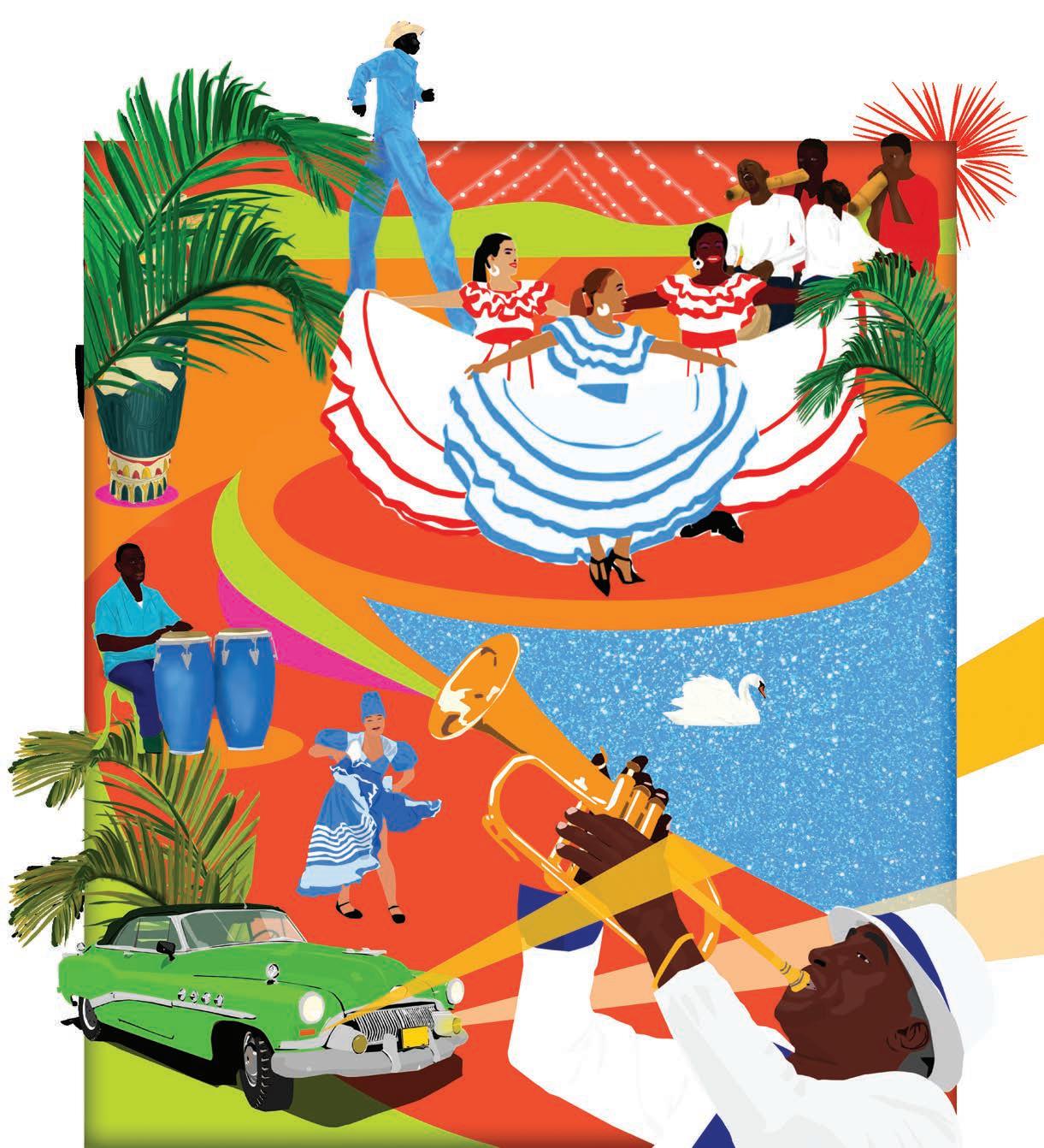
Nobles WINTER 2023 2021–2022 ANNUAL REPORT Curious Culture How we cultivate creativity PG 28
FROM GREENE FIELD TO THE CHARLES RIVER Choose your spectator spot: lounging on the hill under an oak or perched on a bridge as Nobles’ first ever women’s VIII crew competes in the Head of the Charles (bow #83).
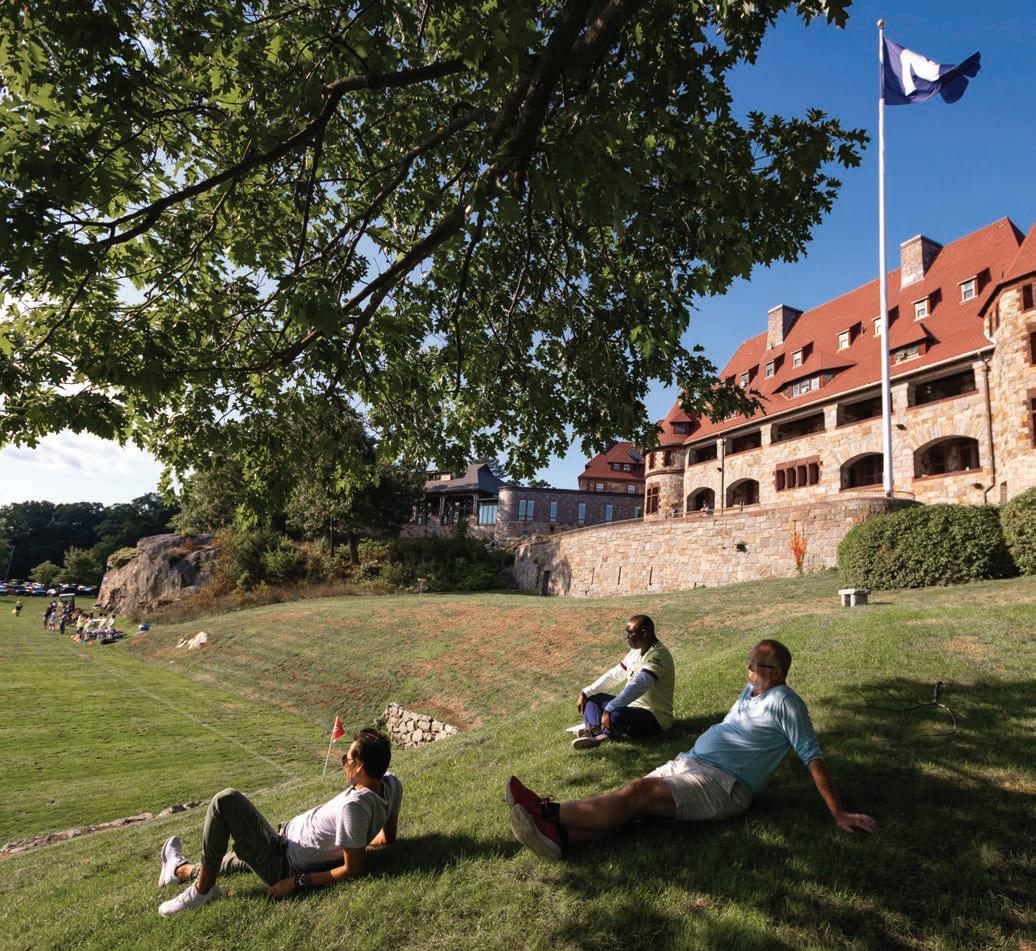
MoMents
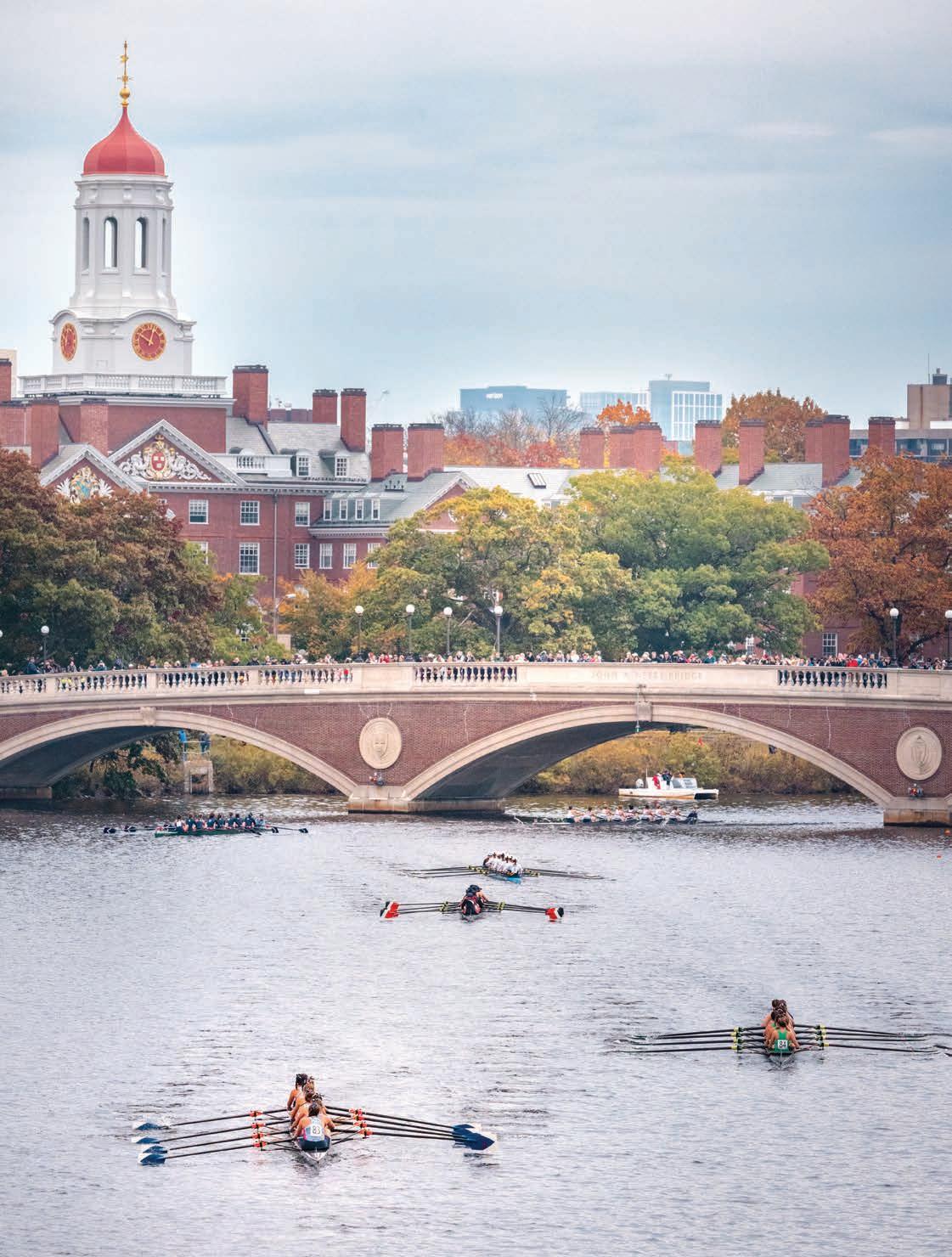
Nobles wiNter 2023 1
HAUNTED HAPPENINGS Halloween at Nobles is so much more than just playing dress-up. The “So You Think You Can’t Dance Class” played a high-flying game of tag, and Henry Saltzman ’23 maintained his oboe fingering while wearing his Pluto paws.
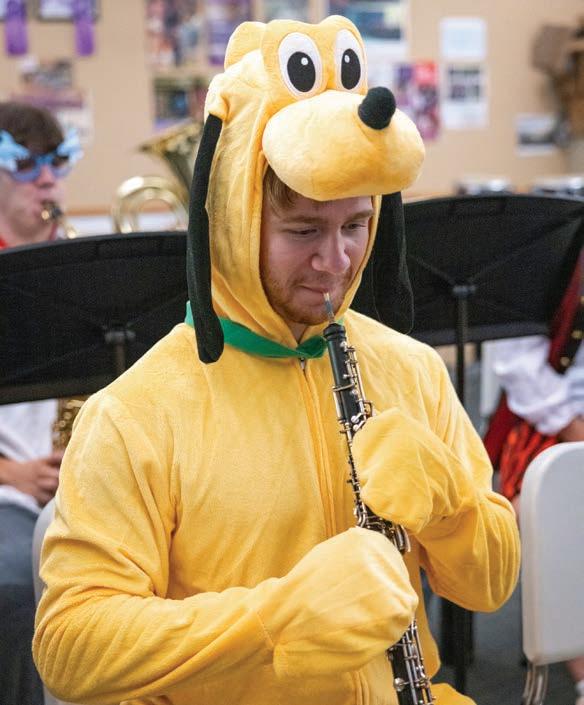
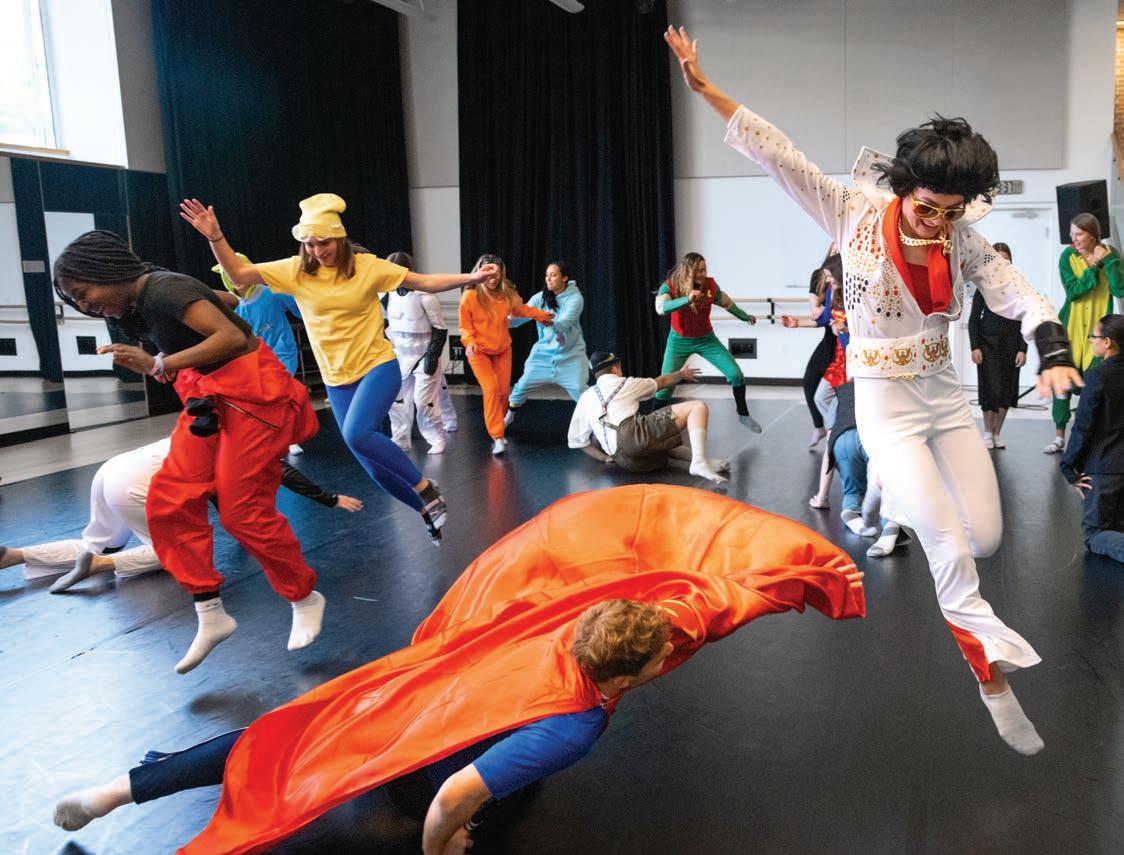
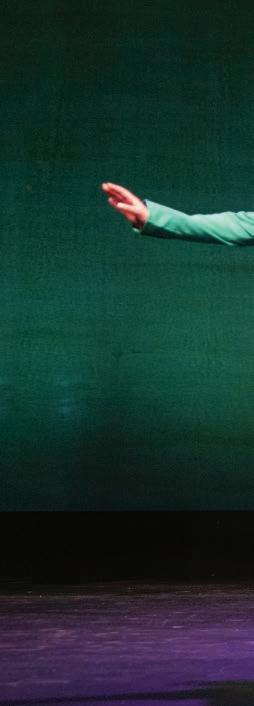
2 Nobles wiNter 2023
SPLASHES OF COLOR
Kira Morales ’27 draws with pastels in middle school art class while Madi Shaer ’23, Hailey Rashes ’26 and Molly Hughes ’23 rock vibrant business suits during their “9 to 5” tap number in the fall dance concert.

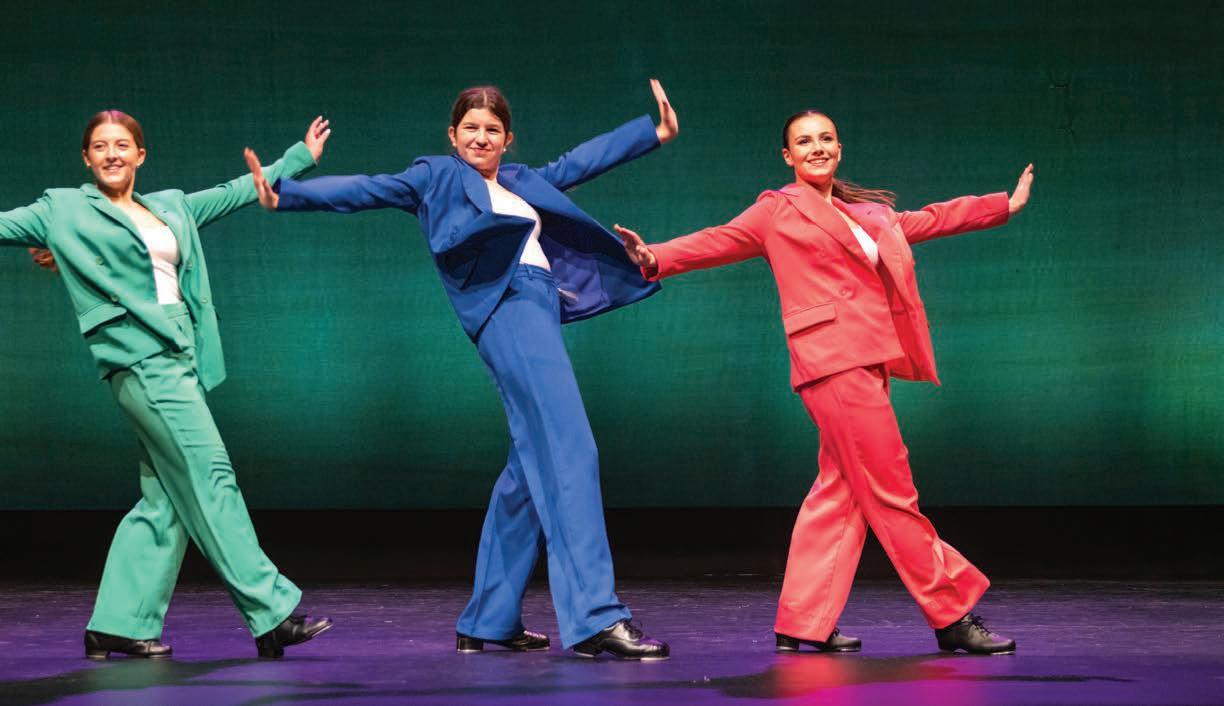
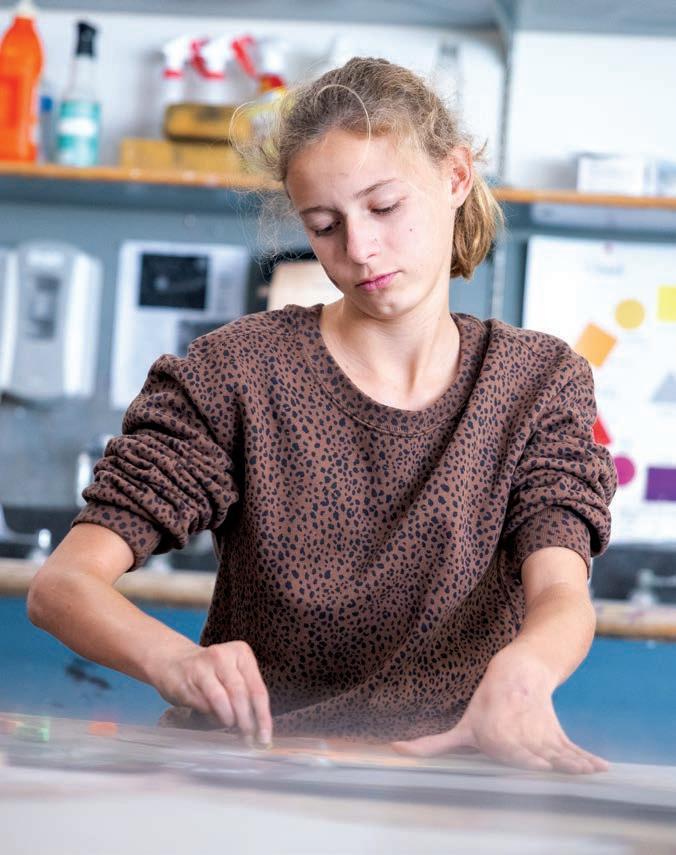
LEARNING From the scene shop to the science lab to the garden, Nobles students learn by doing. Justice Hickman-Maynard ’24 on the miter saw; James Hazen ’26 in focus between graduated cylinders in the biology lab; Rachel Zhou ’28 with advisor Thomas Forteith and Erin Hartford working at the Oasis on Ballou urban farm in Dorchester during the middle school day of service.

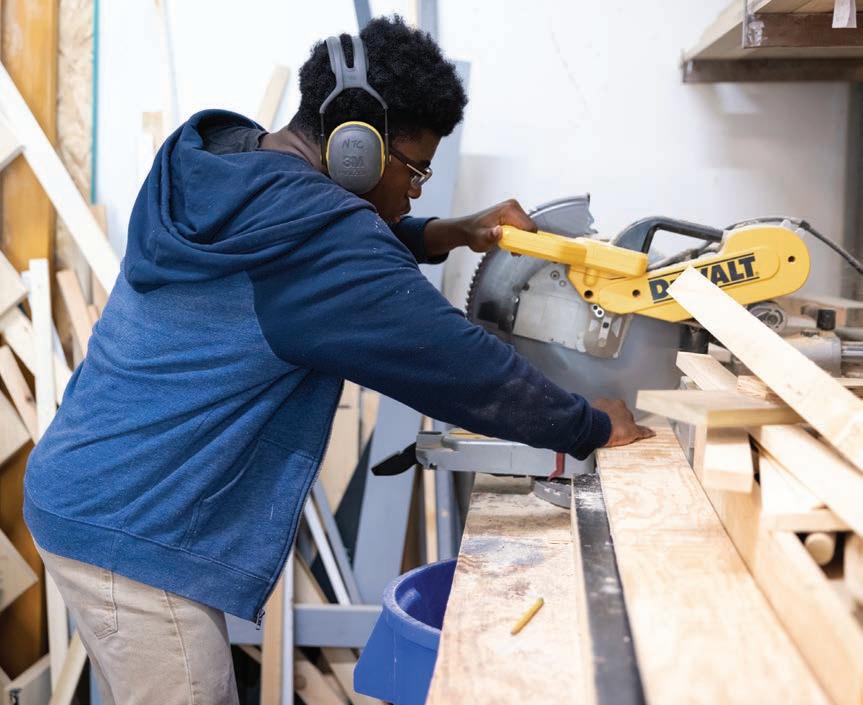
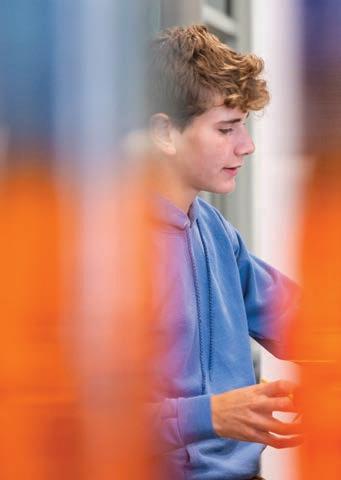
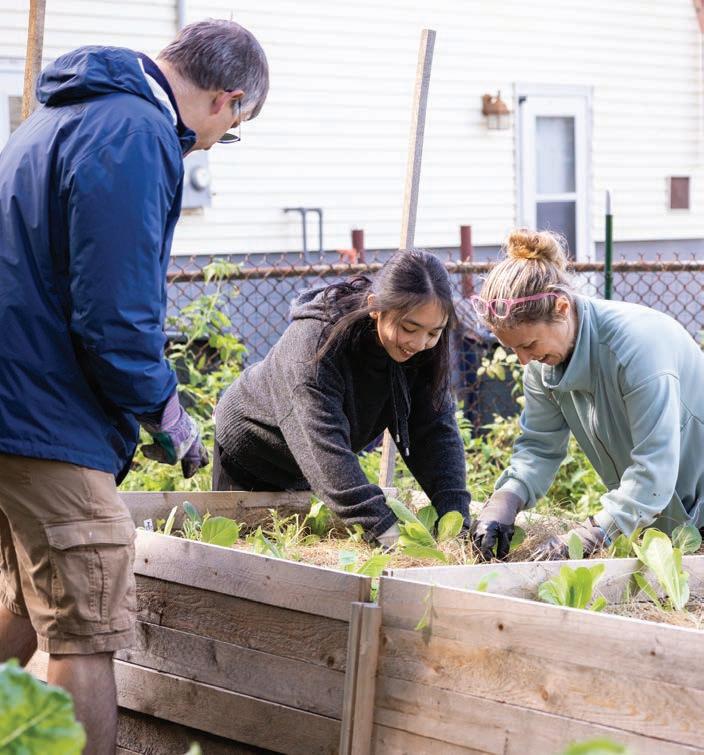
4 Nobles wiNter 2023
MoMeNts
HANDS-ON
REASONS TO CELEBRATE

Volleyball celebrated its 10th season this fall, and Kimya Charles is one of the coaches who has been with the program the longest; Boys varsity soccer captain Tom Smee ’23 charges toward the fans after scoring in the first half of their Friday Night Lights game against Lawrence Academy.
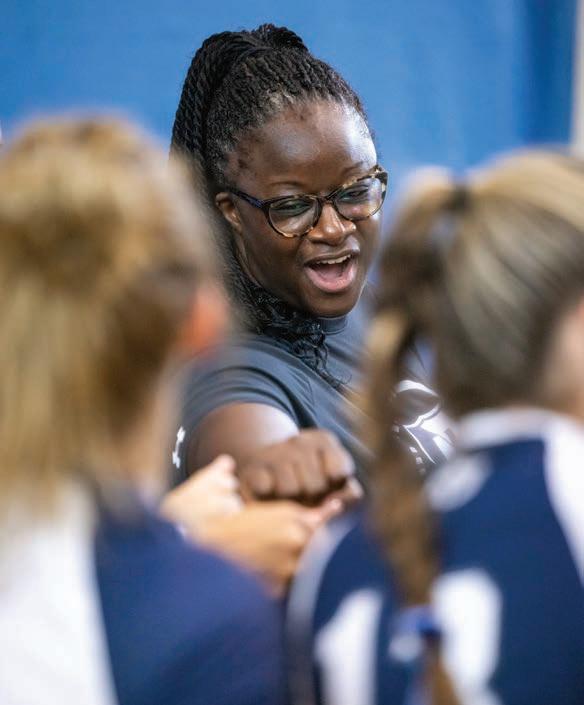
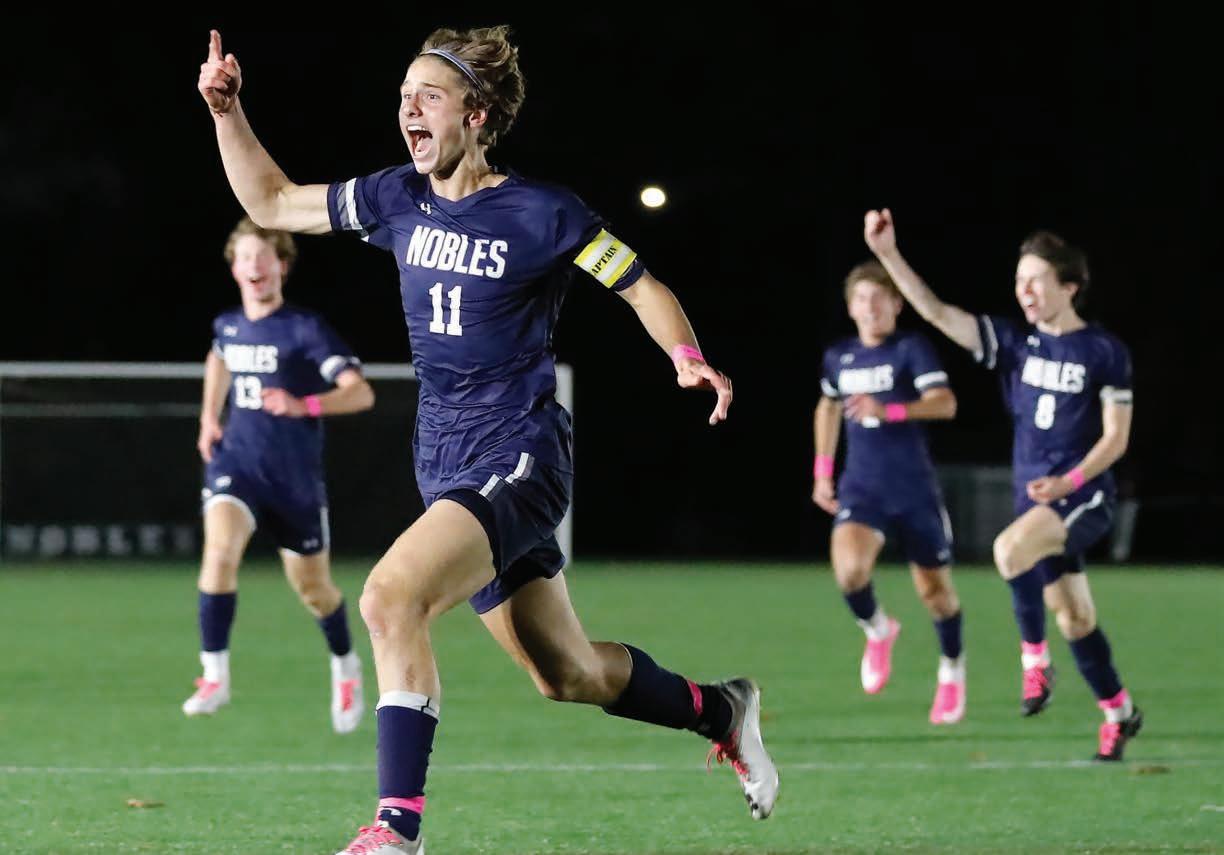
Curious Culture
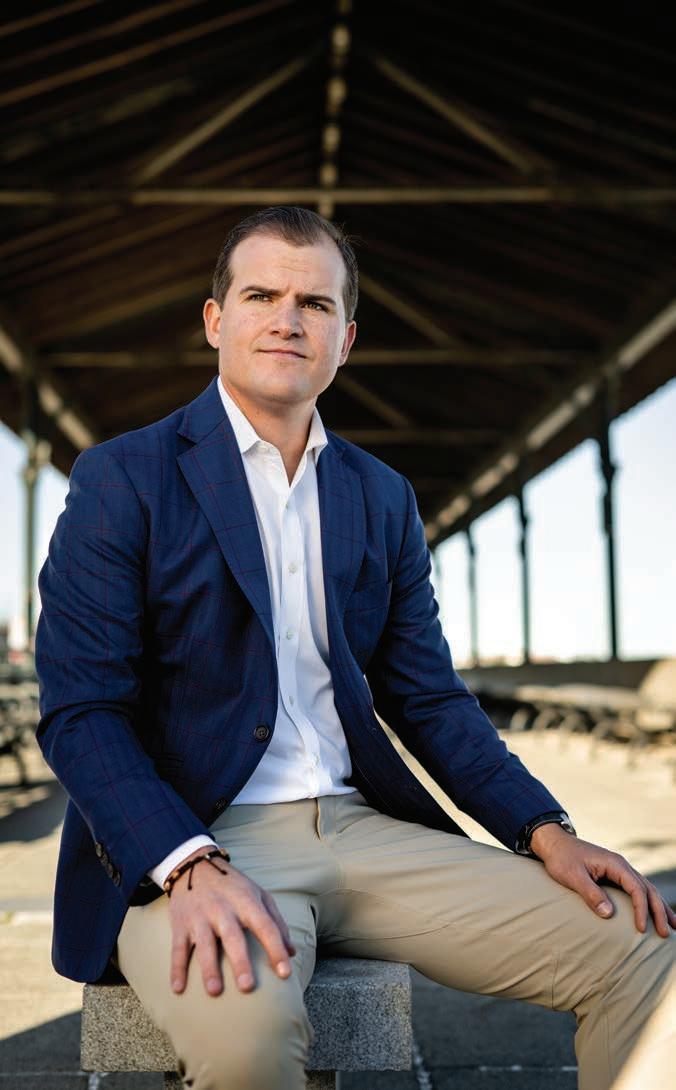
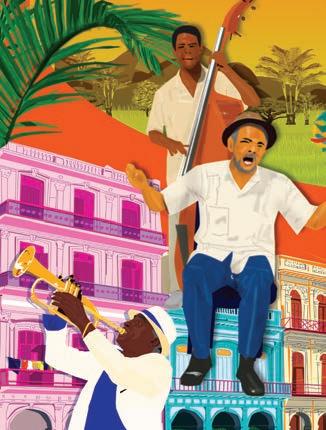
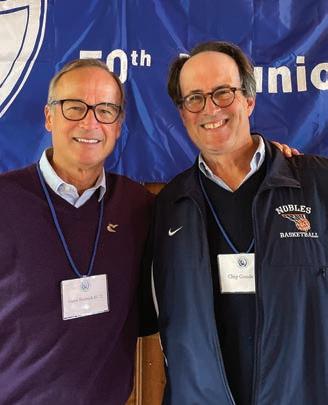
6 Nobles wiNter 2023 Contents
Up and Leaning In
graduate’s gratitude, and how he’s giving back
Ages
on decades of support
Lacing
One
Commitment Through the
Building
36 28 24 cover ILLUSTrATIoN BY LYNe LUcIeN
Nobles teachers flip the script, becoming students
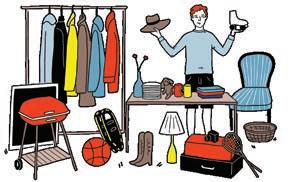
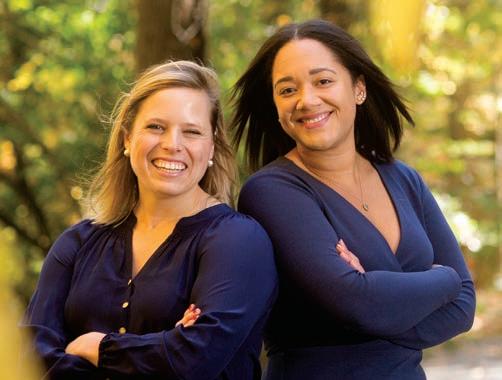
Nobles wiNter 2023 7 CAMPUS DRIVE CONNECT WITH US ONLINE WWW.NOBLES.EDU @NOBLEANDGREENOUGH @NOBLEANDGREENOUGH GRADUATE PROFILE ANNUAL REPORT Why They Care and Do IN EVERY ISSUE Young Grads Showing Up Committees, financials, funds and gifts given during the 2021–2022 fiscal year A Record of Generosity 42 12 Nobles Night 2022: A Successful Start 14 2022 Cora Hidalgo Holland Award: Milena Musto 16 75 Years and Counting for Camp 17 Staff Spotlight: Diane Marangoly 19 Three New Faculty Members, One Question: Influential Books 21 Graduate Author: Sara Farizan ’03 22 Coach’s Tip: Kevin O’Neill on Strength Training 23 Meet the Athlete: Eliza Teplow ’23 8 From the Head of School 80 Looking Back 44 WINTER 2023 | 2021–2022 ANNUAL REPORT
Gratitude and Giving
I WRITE THIS LETTER filled with tremendous gratitude.
First, I am grateful for our students, who have filled our classrooms, hallways, fields and stages this fall with their laughter, energy and enthusiasm. We are truly “back” this fall in all the right ways, with our students leading the way.
I am also grateful for our faculty and staff, who have led us through these last few incredibly challenging years with an enduring dedication to their students and their craft as educators, all while the world shifted underfoot over and over again. We are able to return to so much we care about at Nobles this fall because of what our faculty and staff did to protect it.
I am also grateful for our parents and guardians, who have supported and partnered with us over the last several years in such impactful ways. Despite the many trials we faced together, I felt the deep commitment of our families to our mission as well as an abiding faith we were doing our absolute best—amidst exceedingly trying conditions— to deliver on that mission for our students.
Lastly, I am grateful for our graduates, who supported us from afar while our campus was closed and flooded back to Dedham when we eagerly reopened our doors. Whether just a few years or many decades past graduation, Nobles graduates have stood by us and invested in our present and our future. This year’s Nobles Night on November 3 was a powerful illustration of the ways in which our community has simply shown up for Nobles, to support our mission and to deepen our community.
This fall has also afforded us the opportunity to pick our heads up and look ahead with great optimism about the future of our school. We have embarked upon a strategic planning process that is thinking boldly about how we can deepen the principles that are the cornerstone of our community, while also thinking both ambitiously and humbly about how we continue to innovate and iterate our program to best deliver on our promise to current and future Nobles families.
While I am deeply proud of the many successes we celebrate at Nobles, I am acutely aware of the steep challenges facing our mission. Now, more than ever, is a time for us to double-down on what we value at Nobles, to face the challenges threatening those values with bold and confident steps to secure them.
Over the months ahead, I look forward to getting off campus to meet with the Nobles community around the country. I welcome an opportunity to share more about my strategic vision and our exciting work ahead, and to invite your questions and ideas. My gratitude for the many ways the Nobles community has supported our success in recent years leaves me enormously hopeful about our ambitious journey ahead together.
cATherINe J. hALL, Ph.D., heaD of School
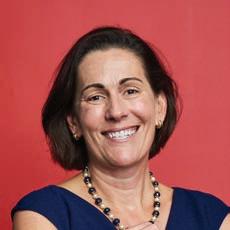
Nobles
EDITOR
Heather Sullivan
Director of Marketing and Communications
ASSISTANT EDITORS
Kim Neal
Associate Director of Communications & Director of Social Media and Admission Marketing
Ben Heider
Associate Director of Communications & Director of Video and Photography
Anne McManus
Associate Director of Communications & Director of Graphic Design, Web Development and Content
CREATIvE DIRECTION AND DESIGN 2communiqué www.2communique.com
PHOTOGRAPHY
Kathleen Dooher, Michael Dwyer, Ben Heider, Leah LaRiccia, Jared Leeds, Anne McManus, Kim Neal, Heather Sullivan
Nobles is published three times a year for graduates, past and current parents, guardians and grandparents, students and supporters of Noble and Greenough School. Nobles is a non-sectarian day and five-day boarding school for students in grades seven (Class VI) through 12 (Class I). Noble and Greenough School is a rigorous academic community that strives for excellence in its classroom teaching, intellectual growth in its students and commitment to the arts, athletics and service to others.
For further information and up-to-the-minute graduate news, visit www.nobles.edu.
Letters and comments may be emailed to Heather_Sullivan@nobles.edu. We also welcome old-fashioned mail sent c/o Noble and Greenough School, 10 Campus Drive, Dedham, MA 02026. The office may be reached at 781-320-7268.
© Noble and Greenough School 2023
8 Nobles wiNter 2023
froM the head of school “
| 2021–2022 ANNUAL REPORT
WINTER 2023
Nobles wiNter 2023 9
”
“
—PreSiDent of nobleS boarD of truSteeS JohN MoNTgoMerY ’83, SPeaking to StuDentS at aSSembly
What else is in the mix that makes Nobles unique? It’s all of those things that are harder to capture in a phrase. It’s andcaringkindness, selflessness and support, energy and enthusiasm, compassion and forgiveness.
Campus Drive
THE NOBLES THEATRE COLLECTIVE’S production of Kate Hamill’s adaptation of Little Women explored timeless themes around family, identity, connection and purpose.
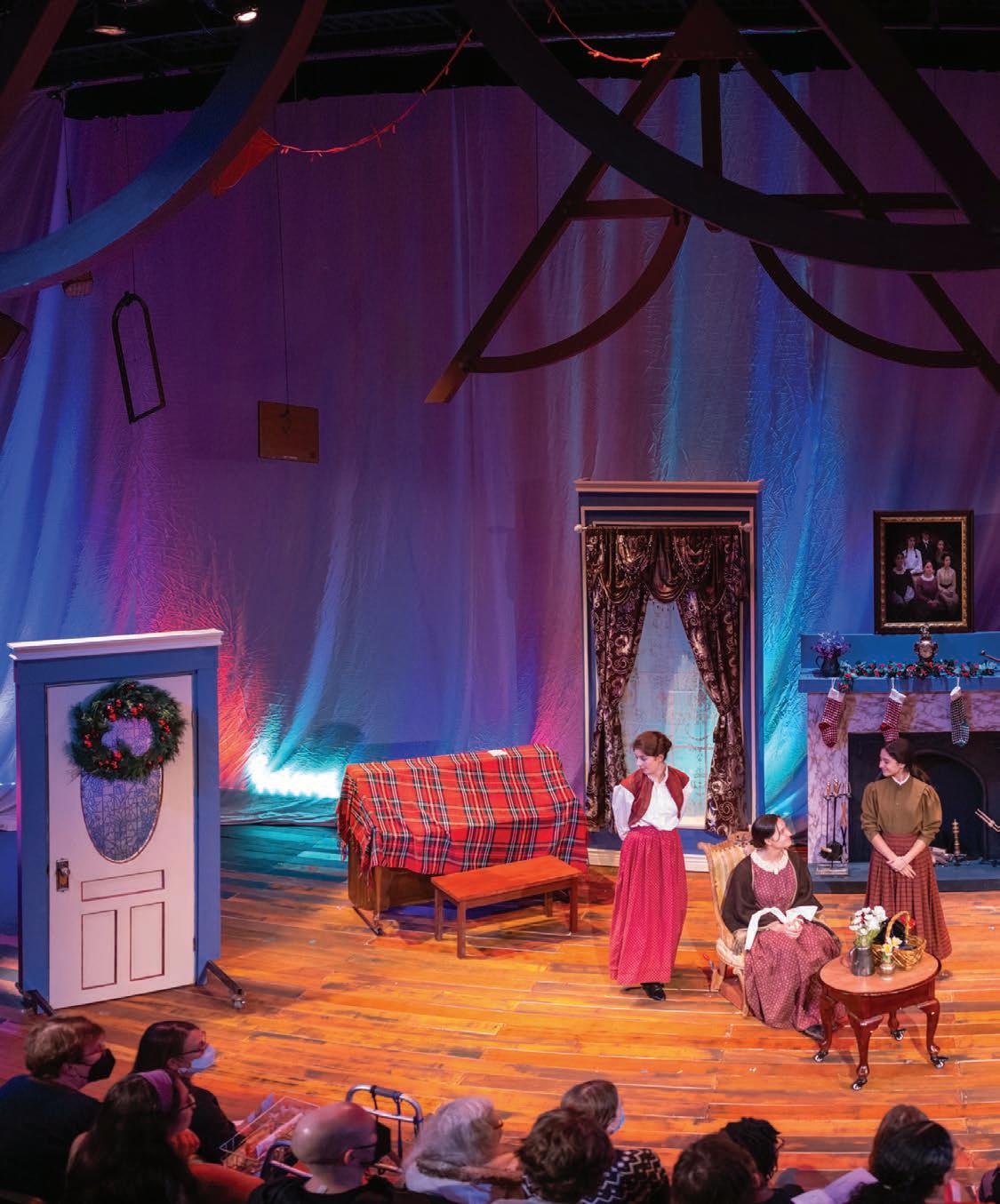

A Successful Start
On November 3, 2022, nearly 400 Nobles graduates, parents and friends came together to celebrate the enduring spirit of the Nobles community. The annual event, which took place in Rappaport Gymnasium highlighted the continued strength of the Annual Nobles Fund (ANF) and the First Class Fund for Faculty (FCFF), and was an opportunity for the school to thank its dedicated volunteers and loyal supporters for their hard work and generosity this fall. From September 1 to Nobles Night, commitments to the ANF totaled $3,948,388 and the FCFF reached $905,191.
Guests were welcomed by John Montgomery ’83, president of the board of trustees, who thanked them for their support and their willingness to connect with each other and the extended community. “Whatever your particular reason…thank you for all the ways you connect and engage with this community,” said Montgomery. It is this unique sense of connection that has allowed Nobles to weather past storms and to look to the future with confidence and enthusiasm.
Head of School Dr. Cathy Hall added to Montgomery’s comments on gratitude and engagement and shared what is next for the school. “We are embarking upon this next strategic planning journey with tremendous pride in where we are, tremendous optimism and a ton of humility,” Hall said. “We are where we are today because of this community.”
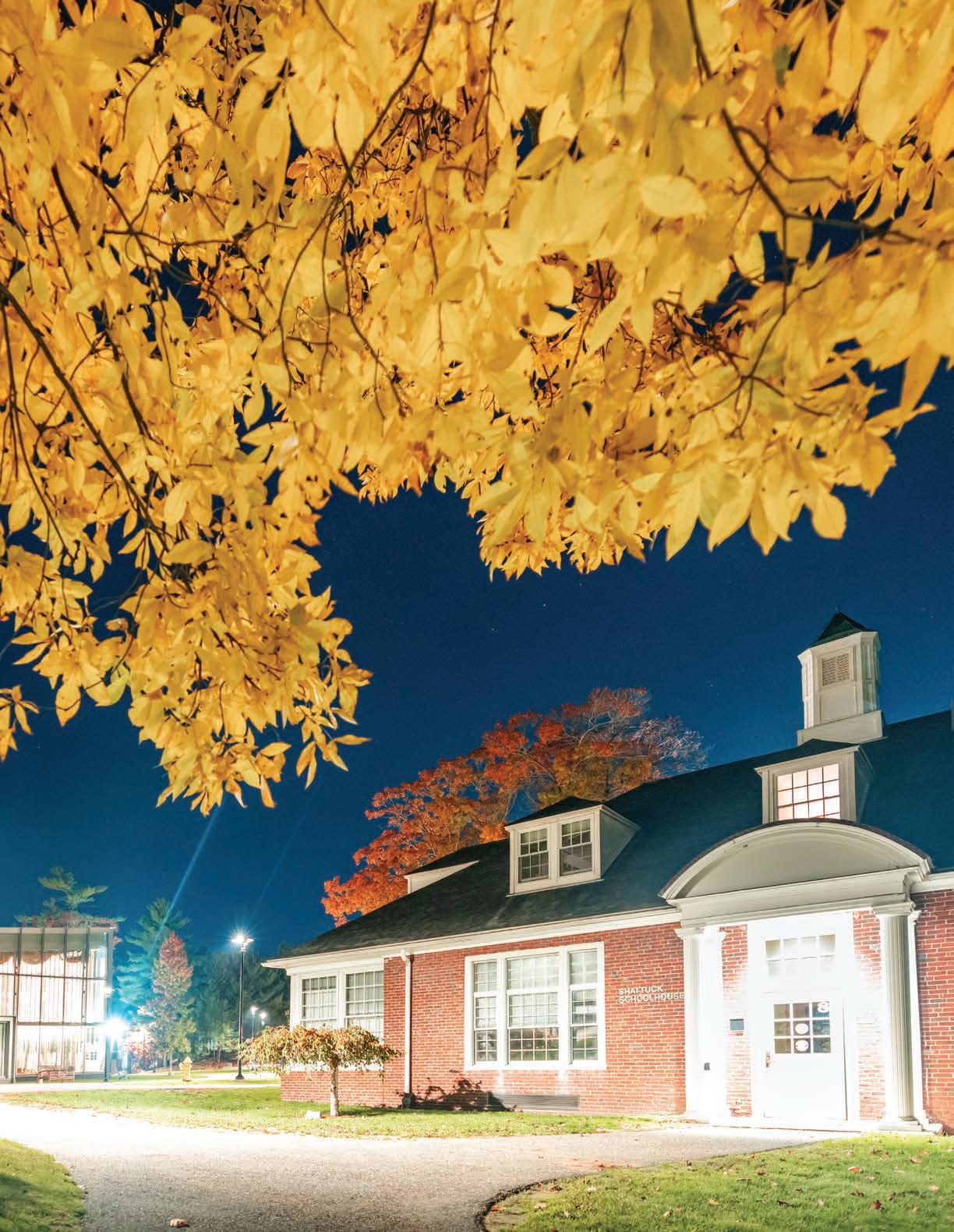
NOBLES NIGHT 2022
DANA GREY SHARES WORDS
Dana Grey ’15, National Hockey League lead for the Bleacher Report in New York City, is also an ardent reader and enthusiastic TikTok user. One of Grey’s TikTok posts, about his book exchange with his local 7-Eleven cashier, went viral and was viewed by 2.3 million users. The theme of the post was how the men started talking books one day, then began loaning each other favorite titles, including Gabriel García Márquez’s Love in the Time of Cholera. The 7-Eleven worker, identified as Sumon, has become a friend, Grey said. Grey tagged the original post, dated July 30, 2022, “Get yourself a book exchange folks.” It’s captioned: “The most stable relationship I have in NYC…”
CHRIS TILLEN ’23 blew the crowd away with an impressive performance (sans sheet music) of “Rigoletto,” by Franz Liszt, a paraphrase of the Opera entitled Rigoletto, written by Giuseppe Verdi. Tillen explains, “I chose to play this piece because I feel it has a super playful and light character—it always makes me a little bit happier when I play it, and I hoped that it would have the same effect on Nobles students.”
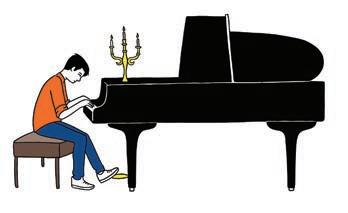
A NEW SCHOLARSHIP AT NOBLES
When Oliver White ’12 was inducted into the Nobles Athletics Hall of Fame in the spring of 2022, his parents, Greg White and Alison Brown, announced that they would establish the Oliver White Scholarship in his name. The scholarship will be awarded annually to a Black student-athlete, with preference given to a member of the Nobles soccer team who, like White, exhibits a commitment to excellence on the field and in the classroom.
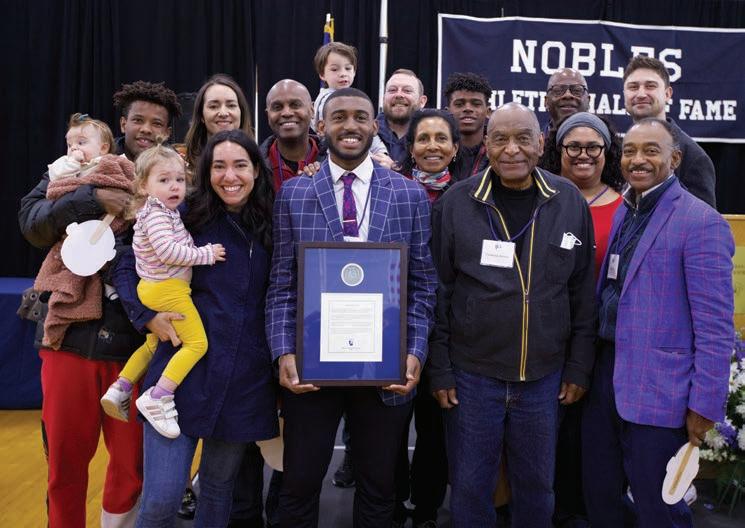
White was not just a phenom on the athletic fields during his years at Nobles—a leader and a philanthropist even at a young age, he was as dedicated to service work as he was to the work he did on his athletic teams. During White’s junior and senior seasons, the boys varsity soccer team won the ISL Championships and White was named as both the ISL Offensive Player of the Year and the 2012 Massachusetts Gatorade Player of the Year. As a member of the Harvard University varsity soccer team, White made 62 career appearances and won the Hamilton Fish ’10 award.
After college, White went on to play soccer for professional teams in the United States and abroad before retiring in 2020. In this same year, he established the Oliver White Foundation, which was created “to leave a post-professional soccer career legacy of spreading positivity, raising awareness of racial injustice, and memorializing victims of police brutality.” Nobles looks forward to welcoming many more student-athletes who embody White’s selfless character and bring the same level of remarkable talent to the fields of the future.
Nobles wiNter 2023 13
ILLUSTrATIoN BY DrUe WAgNer caMPUs driVe
Oliver White ’12 and family at the 2022 Nobles Athletics Hall of Fame ceremony
SLEEPING AWHILE
When E.B. Bartels ’06 spoke about her first book, Good Grief: On Loving Pets, Here and Hereafter, at assembly on September 28, she added a bonus activity: a tour of Pine Ridge Pet Cemetery, which is adjacent to the Animal Rescue League beside the Nobles campus. She told the community that her book was, in part, inspired by her experience going to school so close to that final resting place. Among the stops on the tour was one grave for three Boston bull terriers: Donald Stuart, Royal Nelson and Laddie Miller. The epitaph reads: Sleeping Awhile. While the homage is sweet, what is unusual about it is that the owner of the beloved pets was none other than the notorious Lizzie Borden of Fall River, Massachusetts, who likely murdered her mother and father with a hatchet in 1892 (though she was acquitted). Borden’s father, Andrew, was notoriously frugal; he had prospered in the manufacture and sale of furniture and (ironically) caskets. Borden and her sister, Emma, inherited his wealth and, though ostracized after the bloody event, lived as wealthy women who loved dogs. Borden died in 1927 and is buried in Oak Grove Cemetery in Fall River, in the same plot as her sister, father and stepmother.
FACULTY MEMBERS Oris Bryant, Jenny CarlsonPietraszek, Dan Reid, and Hannah Puckett, along with Kai Schotland ’27 and Val Gualdron ’24, battled it out in a tense spelling bee. Orthography was on stage and in the hot seat as words such as colonel, cantaloupe, heresy, ophthalmologist, phlegm, and Worcestershire were egregiously misspelled by faculty and students alike.
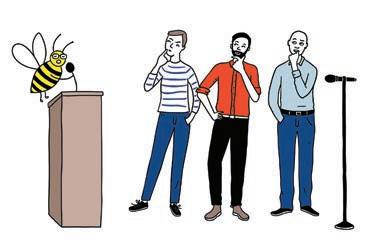 2022 CORA HIDALGO HOLLAND AWARD
2022 CORA HIDALGO HOLLAND AWARD
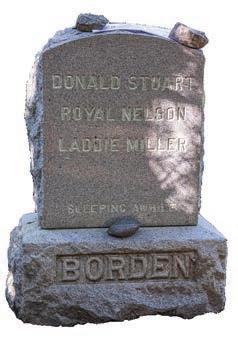
Milena Musto
At the annual employee opening meeting on August 29, Head of School Cathy Hall presented Milena Musto, assistant to the dean of admission and director of admission, with the 2022 Cora Hidalgo Holland Award. It commemorates the kindness of its namesake and appreciation for a staff member who has shown excellent work, dedication and character.
Hall commended Musto’s warmth, professionalism and collegiality. She said, “Since 1998, Milena has been a cornerstone of our Nobles community and an anchor of the admission office. She is as skilled in her work as she is kind a colleague. She works exceedingly hard to ensure her work is done and done well, but she is also that colleague who will routinely offer to help ensure others’ work is done well too!”
Dean of Admission Brooke Asnis ’90 said, “For people who interact with our admission office, Milena is often the face of Nobles, answering their questions on the phone and welcoming them in person with her incredible warmth. Dedicated, reliable and positive, she is always looking for ways to help, playing a critical role in all of our projects and events, and sharing her ideas to improve our work. Milena is a thoughtful problem solver; her proverbial wheels are always turning. As an example, when we first learned of the Orange Line shutdown, Milena immediately thought of our students who rely on the T to get to school and offered her thoughts on ways we might help to support them.”
Head of the Upper School Michael Denning added, “When you talk with Milena, her kind and caring demeanor makes you think that your concern or challenge is all that matters to her—that is such a gift!”

14 Nobles wiNter 2023
THE TALENTED DUO of Molly Hughes ’23 and Lauren Velasco ’25 had such a great time making their debut in the spring of ’22 that they reunited to sing “When You Believe,” from the movie The Prince of Egypt, bringing the house down with an impressive vocal performance. They chose the song because they “loved how the parts intertwined and flowed together.”
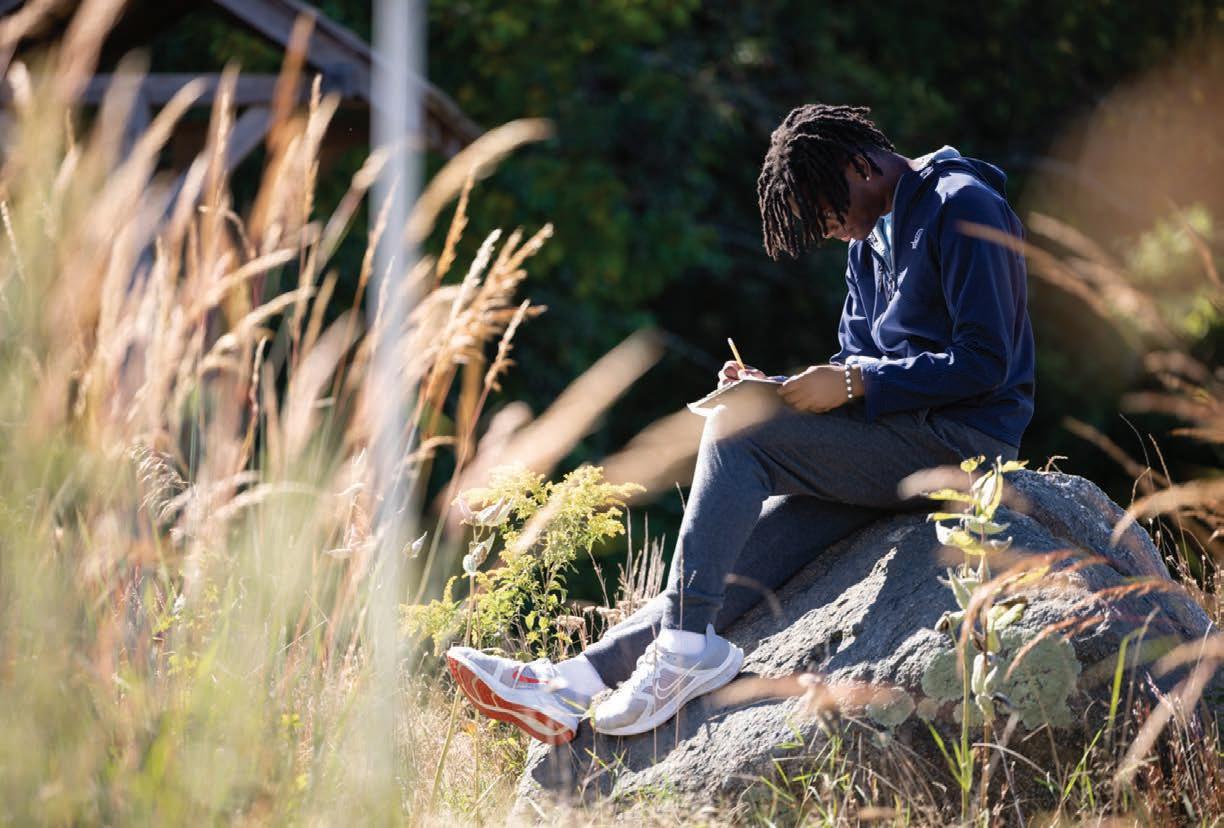

Nobles wiNter 2023 15
“The Manomet trip provides students with hands-on participation in data gathering in a biodiversity study; it is an example of the impact that real-world learning and engagement with scientists can have on broadening and enriching students’ perspectives.”
ILLUSTrATIoNS BY
—Science faculty member DeB hArrISoN
DrUe WAgNer
Hakeem Daphnis ’23 gathers milkweed population data in Manomet's pollinator test plots.
CELEBRATING 75 YEARS OF NOBLES DAY CAMP AND ITS DEVOTED DIRECTORS

1948—the first Polaroid camera goes on sale at the Boston Jordan Marsh for $89.75, the World Health Organization is established, and the Olympic games are held for the first time in 12 years. In the small town of Dedham, Massachusetts, two forward-thinking directors and five staff members welcome 48 children to the inaugural summer of Nobles Day Camp (NDC).
Nobles faculty members Grandin Wise and George K. Bird knew their proposal to start a day camp on campus held some promise, but even these visionaries could not have imagined that, three quarters of a century later, their inaugural program would grow to a camp that employs over 300 staff and welcomes 1500 campers per summer. This past summer, NDC celebrated 75 summers of learning and fun that Bird, Wise, and the directors and staff who followed them created for countless children and families.
Since its inception in 1948, Nobles Day Camp has seen only five directorships— an average tenure that is almost unheard of at summer day camps, which tend to see frequent turnover in leadership. In 2003, NDC welcomed its 5th head, the beloved Emily Parker. For 19 years, she seamlessly ran a camp intent on continuing the legacy of its founders, emphasizing the enjoyment of play through multiple activities and resisting the trend towards specialization. In January 2023, on the cusp of two decades of leadership
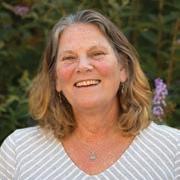
at NDC, Parker, who has mentored hundreds of staff and has seen thousands of children through the program, will step ever-so-hesitantly away from her perch on the Owl’s Nest. Parker has been instrumental in the camp’s success, her unwavering devotion to the children, the staff and the founders’ mission making the camp what it is today.
“There may be no better model of the school’s mission than Nobles Day Camp,” says Chief Financial Officer Steve Ginsberg, who has worked closely with Parker over the years. “The camp,” he adds, “models positive relationships between adults and children and provides real opportunities to take risks and grow. Over the past 20 years, the upholding of that mission has been modeled by Emily Parker. It is incredibly rare to find a true camp person who understands the business of camp. In her years at Nobles, Emily has led the biggest program that we have at the school with incredible care and thoughtful mentorship of campers and counselors, all while generating critical revenue for the school’s operation.”
Echoing Ginsberg’s sentiments about the connection between the school and the camp, Parker also alludes to the deep
connection between the school and the camp and explains where the two diverge. “We feel pretty strongly that we have been able to follow the school’s mission, all the way up to academic rigor, and then we take a sharp left turn because we say, ‘Kids have so much pressure all school year, and this is the one place they can do something just because they want to. Our program will let you dabble and find what your interests are and what you want to continue to pursue, but more importantly, what it does is it really allows kids—and staff—to continue developing the social-emotional side, what it is to be in a group, conflict resolution, and socialization skills that they don’t have time to do anywhere else.”
Parker explains that Bird and Wise sought to use the campus “in a way that promotes education, but through a fun learning experience that is hands-on, experiential and recreational,” and this is exactly what NDC continues to do today. “We have tried to do a good job of caretaking the vision and being the steward of that philosophy,” she adds, “and we have tried really hard not to stray from it. Nobles Day Camp is a vibrant, caring summer community, and campers and staff all recognize and appreciate what a great place it is to spend their summers. None of that would be possible without the vision and dedication of GK and Grandy. How proud they would be to know their legacy lives on!”
16 Nobles wiNter 2023
THE CHESS CLUB made its muchanticipated annual announcement to elicit new members, acting out a dramatic scene in which club members, clad in black capes, deftly defeated the Wei Qi Club yet again. “Every year we have an extravagant assembly announcement to embellish a seemingly boring game,” explains club president Ben Owusu-Amo ’24. “This way we can entice newcomers so that they can begin their journey of learning the beautiful game.”
DAY CAMP BY THE NUMBERS
summers of learning and fun
1,497
campers in 2022 staff members in 2022
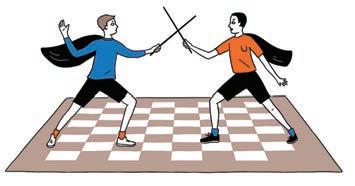 STAFF SPOTLIGHT
STAFF SPOTLIGHT
The Difference Maker
Meet Diane Marangoly, Director of the Annual Nobles Fund
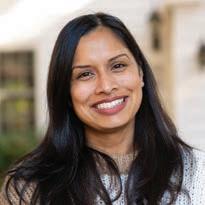
HOMETOWN: Markham, Ontario, Canada
ARRIVED AT NOBLES: March 2022
HOW SHE FOUND HER CALLING: When she entered university, Marangoly wanted to become an art history professor. But in joining an affinity group called the South Asian Alliance and getting into event planning, she found its combined allure with fundraising irresistible. She’d always been intrigued by fundraising for causes she cares about, like a social justice group in high school. A hospitality and tourism program confirmed her compass, and she “never turned back.” While she’s yet to meet another Sri Lankan fundraiser, she’s optimistic about the field’s growing diversity.
WHAT DRIVES HER WORK: “Really, it’s the opportunity piece: the chance for kids to gain the amazing experiences that I could only dream of. When I think about access and affordability, the number of students and families that are impacted by it—that alone is a huge motivator. Everyone should be able to access opportunities like this campus, its people and programs. It’s not like Nobles is creating a cookie-cutter student; each is equipped to become their best self. I think that’s huge—knowing that the annual fund is backing every student. We call it the ‘difference maker.’”
HOW SHE BRINGS HER FLAIR: While Marangoly left art history for fundraising, she says, “I’ve always found a way to tie in my creativity; I need to have that outlet.” At Emerson Hospital, Cambridge Friends School and now Nobles, she has challenged herself to think “outside the box with a different set of eyes” about what’s been done—and what could be done.
NOBLES IN A NUTSHELL: Welcoming. “Everyone is excited to talk to me about the experience. The theme of most conversations, especially with grads, is, ‘Nobles made me who I am,’ or ‘Nobles changed my life,’ and that is so powerful. Something about this place feels special the second you step on campus—everybody’s so warm and open to conversations. You’re not in your different silos. There’s a concerted effort to build meaningful relationships and embrace diversity, and there is such a strong sense of community and belonging.”
Nobles wiNter 2023 17
NOBLES
75 312
camp directorships: George K. Bird and Grandin Wise, Fred Sculco, Peter and Penny Kerns, John Lee, and Emily Parker 5 ILLUSTrATIoN BY DrUe WAgNer
YARD SALE MYSTERY

After a Covid hiatus, the Nobles Yard Sale— introduced in 1988—was back in full swing this fall. The first weekend of October, the parent and guardian volunteers of Nobles Connect organized the epic event, netting $30,000 to benefit Achieve, a Nobles-hosted academic and enrichment program begun in 2007 for Boston Public Schools middle school students. Every time the sale takes over the Bliss Omni Hockey Rink, stories of spectacular scores occur. This year, one stands out for its uncanny improbability: English faculty member and department chair Jess Brennan’s husband, Neal, loves golf and is sharing that enthusiasm with the couple’s two young sons, and Brennan set out to get the boys golf clubs. What she found was a mystery. When she sent her husband an iPhone photo of the clubs she bought, Neal zoomed in and noticed that the Ping putter sported a label from the Aronimink Golf Club, to which he thought a good friend belonged. The label had a name on it. Neal sent the picture to his friend who happened to know the man, from Philly, to whom the putter had apparently once belonged. That friend sent the picture to the man whose name was on the label. The friend of a friend then revealed that the longlost club was a set that was stolen during his days at Dartmouth College. Brennan and her husband kept the other Yard Sale clubs but mailed the Ping putter—decades after its disappearance—back to its original owner. Talk about fate running its course.
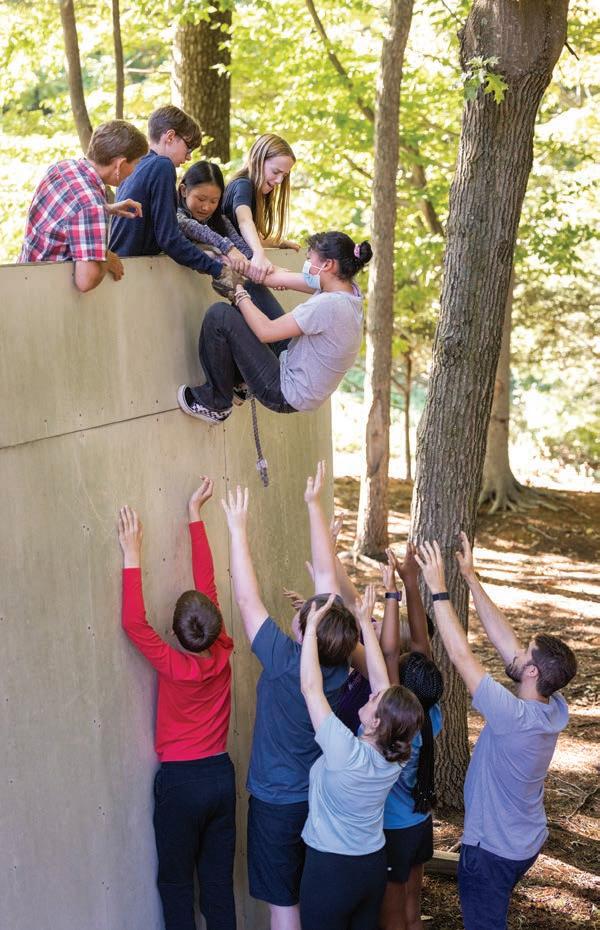
18 Nobles wiNter 2023
“This year’s stellar Middle School Outdoor Adventure group collaborated to get every single person up and over the 10-foot wall—this is no simple feat!” hiStory faculty member anD outDoor aDventure leaDer
JeNNY cArLSoN-PIeTrASzek
Middle school outdoor adventure goes over the wall.
What is the most influential book you have read?
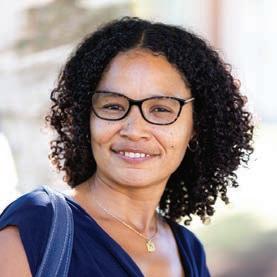
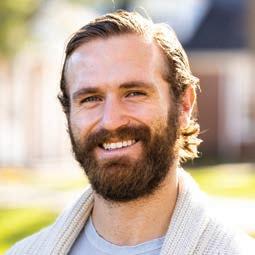
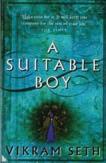
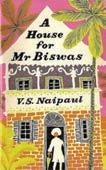
 COMPUTER SCIENCE
COMPUTER SCIENCE
“Desert Solitaire, by Edward Abbey. I read Abbey’s autobiographical account of working as a park ranger at Arches National Monument in the late 1950s just after I graduated college and was living in San Francisco. His musings helped me conceptualize a life devoid of a bifurcation between ‘work’ and ‘life,’ and therefore no need to balance the two. He inspired me to approach the natural world with respect and a sense of stewardship. The intention and attention he paid to the minutiae of his daily routine helped me understand there is, or at least can be, a science to all that we do. Desert Solitaire awoke in me a desire to live a life marked by purpose, gratitude and simplicity, and to appreciate the beauty and challenge of any life worth living.”
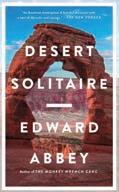
MARIZA ROSADO | SPANISH AND LATIN
“It is difficult to identify the ‘most influential’ book. Throughout the trajectory of my life, I have engaged with a number of books that impacted my worldview. Betty Smith’s A Tree Grows in Brooklyn resonates with me because I saw myself in Irish-American Francie Nolan when I moved from Puerto Rico to Williamsburg, Brooklyn. Homer’s The Iliad inspired me to learn Greek and Latin. Vikram Seth’s A Suitable Boy exposed me to postindependence and post-partition India; all 1,488 vibrant pages occupied me during the last month before the birth of my first child. Finally, V.S. Naipaul’s A House for Mr. Biswas helped me appreciate West Indian culture and to read from a postcolonial lens. I will always revisit these works.”
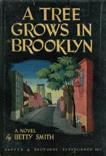
KEVIN RUANO | ENGLISH
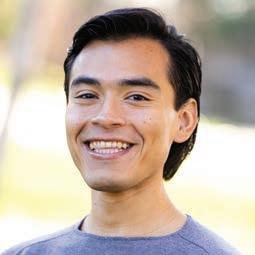
“The Armies of the Night: History as a Novel, the Novel as History. Norman Mailer’s exposition of the hectic antiwar march of October 1967 introduced me to the thrill, clarity and illusion that characterizes life as a writer. Its unconventional form—blurring the line between fiction and nonfiction—and amusing techniques, including Mailer’s use of the third person to describe himself (illeism), lured me closer to the mind of the novelist (by extension his language) and let me grapple with his desires, intentions and flaws in the context of our fast-moving, ever-evolving world. With humor and eccentricity, solemnity and bruteness, the narrative stretched my capacity for empathizing with a writer and writers’ (hi)stories.”
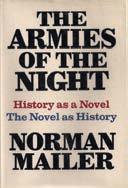
Nobles wiNter 2023 19
MAX MONTGOMERY ’14 |
NEW FACULTY MEMBERS, ONE QUESTION
THREE
caMPUs driVe
A Fitting Tribute
Marzuq Muhammad ’01 was known for his commitment to causes about which he cared so deeply; his 2018 obituary in Nobles magazine said: “His faith, family and communities have always been the most important pillars of his life.” A recipient of the 2012 Nobles Young Graduate Award, he taught, coached and contributed to diversity, equity and inclusion initiatives at Nobles prior to his career in real estate development. At Nobles, he also served on the board, the Achieve Committee, the Building Committee, the Graduates of Color Committee and the Graduates Council.
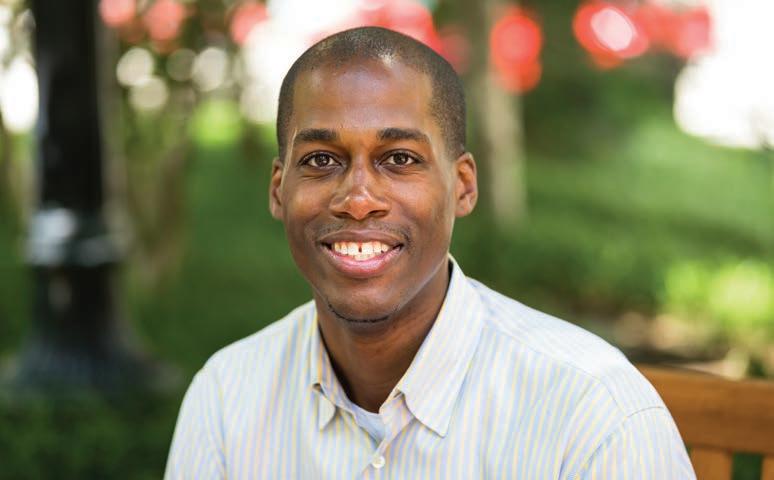
Muhammad was project manager for Trinity Financial on the Overlook Terrace redevelopment with the Boston Housing Authority and East Boston CDC, where he worked to create affordable housing. On September 26, 2022, Trinity Financial and the Boston Housing Authority joined members of the East Boston and Roxbury communities and Muhammad’s family to celebrate his life and to dedicate the Food Pantry at Overlook Terrace at Orient Heights in his honor. The East Boston development is composed of 331 public housing units, part of a revitalization effort for sustainable housing by early 2023.
Muhammad’s former colleague, Trinity Financial’s Eva Erlich, vice president of development, said, “This dedication is a fitting tribute to the life that Marzuq led: a life committed to improving the lives of others through affordable housing, resources like this food pantry, and being a role model in the communities where he lived and worked. His great work on Overlook Terrace and the contributions he made throughout his life—exemplary, accomplished and inspiring—will be forever remembered here and throughout the city of Boston.”
The East Boston Times wrote, “The newly dedicated Marzuq U.R. Muhammad Food Pantry is a community resource that for years has served people from the surrounding Orient Heights neighborhood and elsewhere in East Boston. It is a partnership with the Lovin’ Spoonfuls Inc. food rescue project.”
A. Alif Muhammad, Muhammad’s father, said, “We want to thank Marzuq for his positive influence on the next generation. And we want to thank you for this food pantry, to commemorate Marzuq [and] to continue the struggle.”
HARRISON DOLGOFF, Ava Kocher and Elise Rueppel, members of the Class of 2023 and co-presidents of the Environmental Action Club (EAC), shared statistics related to the environmental impact of the Nobles Yard Sale, an event held every two years to raise money for the Achieve program.
“About 2,000 items of clothing were sold,” explained Kocher. “It is estimated that about 3,781 liters of water are used to make one article of clothing. This water is used for the production of cotton or other materials and the delivery of the final product to the store, equating to the emission of around 33.4 kilograms of carbon equivalent.
We conserved over 7 million gallons of water from the clothing alone saved at the yard sale.”
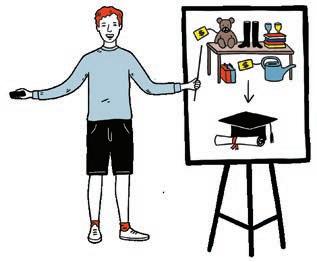
20 Nobles wiNter 2023
East Boston Food Pantry Named to Honor Marzuq Muhammad ’01
ILLUSTrATIoNS BY DrUe WAgNer
GRADUATE AUTHOR
OCCULT FICTION
DeaD Flip, BY SArA FArIzAN ’03 algonquin young reaDerS, 2022
Nineties nostalgia is riding a resurgence—from music to fashion to film, the era evokes trends that are at turns eye-rolling and irresistible. Dead Flip, the fourth young adult novel by Sara Farizan ’03, is an occult high school horror story set during the tumultuous time between 1987 and 1992, chronicling a trio of childhood pals facing the strains that high school inflicts on longtime friendships. Amidst the backdrop of shifting national identities—the eve of the Iraq War and the toppling Berlin Wall—Cori, Maz and Sam struggle to figure out who they are to themselves and to each other. Their encounter with a possessed pinball machine proffers a sinister portal, and Sam mysteriously disappears, testing the lengths to which they’re willing to go for friendship.
Farizan deftly combines coming-of-age heartbreak with supernatural suspense and in-the-know nods to pop culture. But she also weaves in themes of identity and belonging, from hard-partying Maz, who is Iranian like Farizan herself, to late-blooming Sam, to closeted homecoming queen Cori. Faced with high school’s conformity culture, how can young people live authentically while helping their friends do the same? Farizan’s nuanced characterization of Sam, Cori and Maz empowers each to narrate their own alternating chapters. In so doing, Farizan shows how each of us, with our life experiences and biases, experiences the same events differently—but also, how listening and offering support can bridge those gaps in understanding.

THE QUINTESSENTIAL TEACHER-COACH
When thanking Deb Harrison for serving as the head coach for the girls varsity squash team for over 40 years, Director of Athletics Alex Gallagher ’90 could not help but start from the beginning. “In putting Deb in charge,” said Gallagher, “we knew that we were putting someone there who would have that presence and have that ethos and fulfill the things that we want in all of our programs, because she is the quintessential teacher-coach.” Harrison has taught science at Nobles since 1981.
The Deb Harrison Scholarship was created in November 2021 after Harrison’s retirement from the squash program. In her 40-plus years as head coach, Harrison has impacted the lives of hundreds of student-athletes, leading them to nine ISL championships and positioning them to consistently be selected to participate in the A division of High School Nationals, and in the end-of-season New England Interscholastic A tournament. Thanks to commitments from graduates and current and past parents, the fund aims to provide financial assistance to Nobles students in the squash program, or to those who came to Nobles through the SquashBusters program.
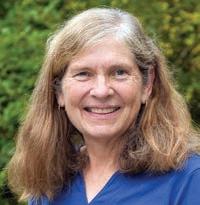
FLUTIST KAJSA HARRINGTON ’23 received an extended standing ovation for her performance of “Carnival of Venice” by Paul-Agricole Genin. Harrington spent three weeks rehearsing the 13-minute piece for a performance that awed the audience with both the complexity and the capacity of her lungs.
Andrea Berberian Gardos ’01, Deb’s successor as head coach, both played as a student-athlete under Deb’s leadership and worked alongside her in the role of assistant coach. “She was and continues to be one of the program’s most enthusiastic cheerleaders,” said Gardos at Harrison’s retirement celebration. “She taught me so much about how to create cohesion on an individual sports team and to deal with wins and losses with not just the elite players but the beginners as well.” Harrison’s departure from the program will leave a noticeable hole, but the Deb Harrison Scholarship will continue her legacy of exemplary sportsmanship on and off the court by continuing to support the studentathletes who embody the spirit of her leadership.
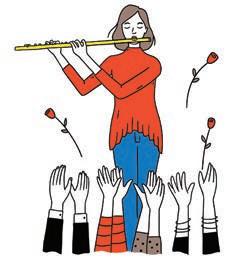
Nobles wiNter 2023 21
caMPUs driVe
FOR THE FUN OF IT
A new program begins.
A new sport with a distinct sound popped up this season: pickleball. The fastest growing sport in America is coached by new Spanish teacher Matt Ferguson and alternates days on the court with indoor rock climbing trips and nature hikes to local trails led by Co-Director of the Putnam Library Talya Sokoll. It’s an ideal trio of activities for students interested in a low-pressure athletic environment.
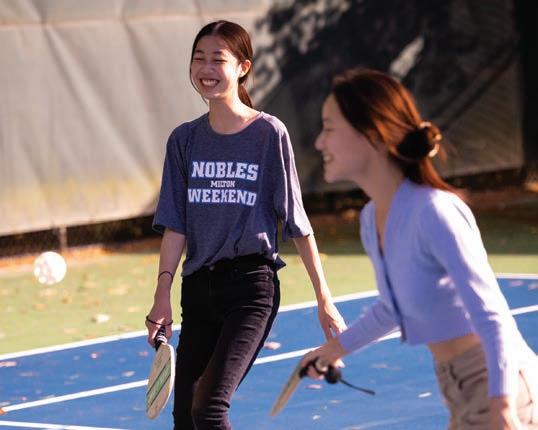
“I enjoy the exercise from it and the gratification you get after you hit a good shot and they can’t return it,” said Yisen Gu ’24 who is playing for the first time this year. Though the sport has yet to catch on widely in the ISL, they were able play one match against Middlesex just for fun.
They don’t take themselves too seriously, often just wearing whatever they wore to school for practice. While there are only six students on the roster, you can usually find extra players joining in before their other sports start practice. “We’re a very welcoming and open crew,” says Ferguson. The beautiful thing is it’s a sport for everybody. So whether they’re hitting winners or whiffs, the peals of laughter resonating in between high-pitched paddle thwacks prove that not everything has to be so competitive.
COACH KEVIN O’NEILL’S STRENGTH-TRAINING TIPS
1. HAVE A PLAN.
Regardless of what your training goals are, you need a plan of attack. It can be a program from an app, a website, a trainer, or written by your favorite ruggedly handsome strength and conditioning coach.
2. CONSISTENCY IS KING. While having a good plan is optimal, a bad plan done consistently is better than a great plan done inconsistently. Use strategies to hold yourself accountable.
3. KNOW YOUR REP SCHEMES AND WEIGHTS. Specific rep ranges lead to specific results. As a general rule, 1–5 reps are for strength gains, 6–12 reps are for building muscle, and 12+ reps are for muscular endurance. It’s likely best to experience a variety of rep schemes, either within one workout, or over the course of multiple workouts.
4. GET STRONGER. Strength doesn’t cure all, but it fixes most. Increased strength can help repair and prevent injuries, increase bone density, improve self-confidence, benefit mental health, and enhance athletic performance.
5. FIND A WAY TO ENJOY IT. Strength training does not have to be a miserable experience. Yes, you benefit from physically demanding workouts that may push you out of your comfort zone, but you don’t have to hate your workouts. Find exercises that are both physically beneficial and somewhat enjoyable.
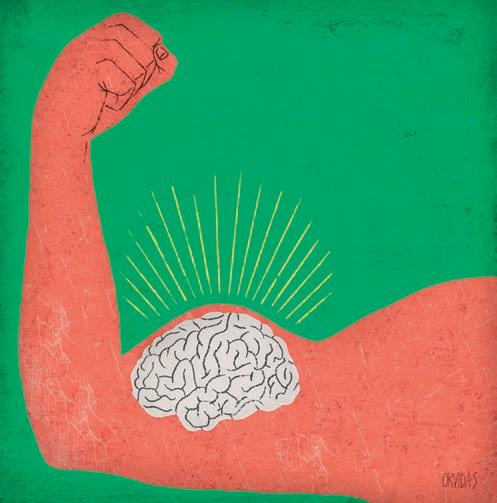
Campus DRIVE
ILLUSTrATIoN BY keN orvIDAS
COACH’S TIP
Mimi Zhang ’23 and Dorothy Zhang ’23
Eliza Teplow
Eliza Teplow ’23
Q: What do you love about the soccer team?
A: This has definitely been a defining part of Nobles for me. I get to spend every fall afternoon with a bunch of my best friends. The team clicks immediately and becomes almost like a family. The closer you are with your teammates, the better you’re going to play on the field. We always have a group of crying girls at the end of the season because we’re so sad it’s over.
Q: Tell me about being the goalkeeper.
A: I essentially do an 80-minute narration of the game. I’m managing the organization of the defense and the midfield—making sure that we’re communicating and that I’m always an option—and then obviously making saves when I need to. I’ve always been willing to put my body on the line. One of the hardest things about being a goalkeeper is having to put a goal out of your mind immediately because the game goes on and you have to get past it. I just try to have a short-term memory.
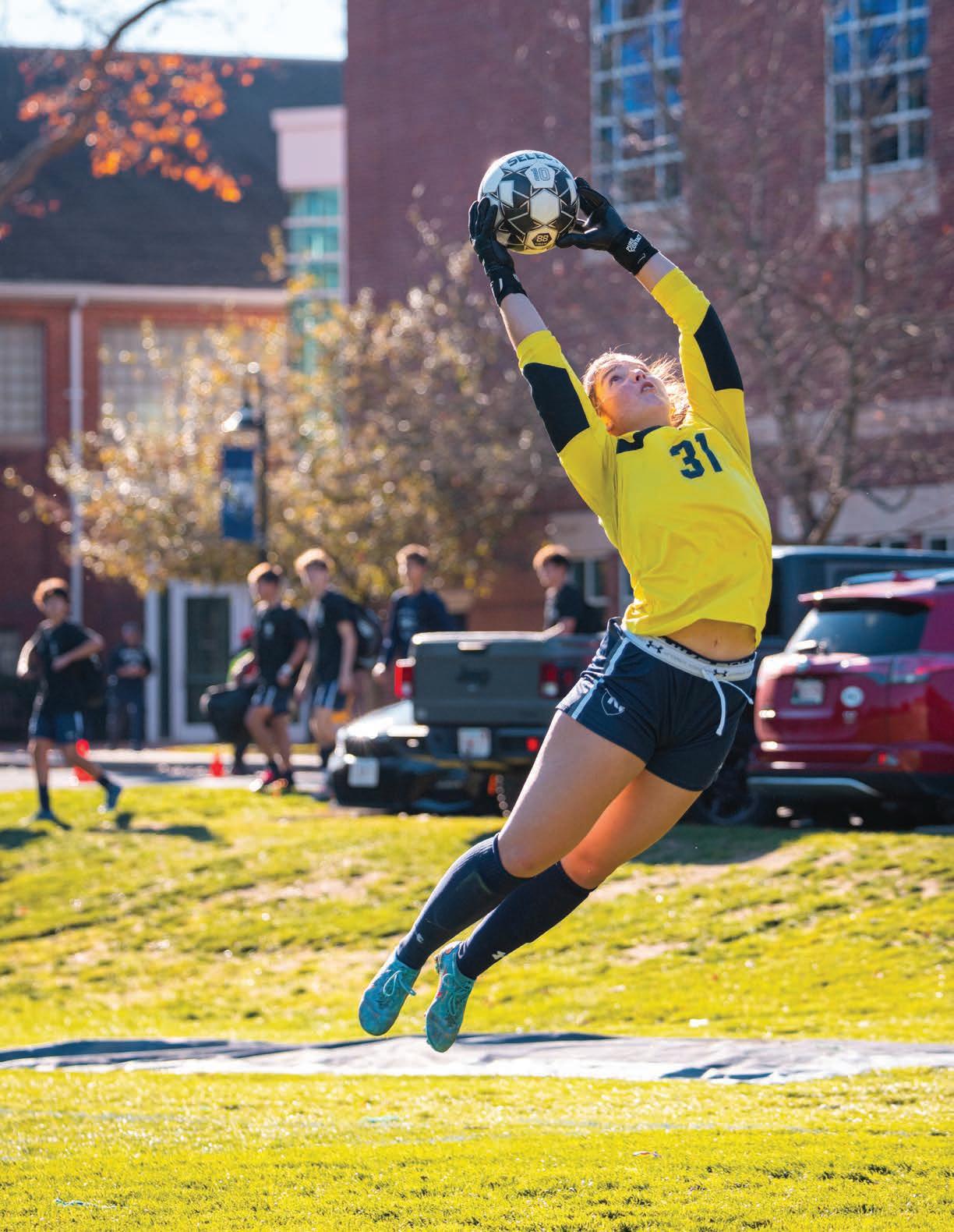
Q: What are some memorable moments from this season?
A: The first and last games stand out. We were so motivated to start our season off well against Worcester Academy, and everyone left it all on the field. And then we’d been trying to put 80 hard, good minutes together the whole season, and it really came to fruition against Milton, beating them 3-0.
is the ISL MVP and All-NEPSAC girls varsity soccer goalkeeper.
THE ATHLETE
MEET
Nobles wiNter 2023 23
“Until one is committed, there is always hesitancy.…Concerning all acts of initiative and creation, there is one elementary truth, the ignorance of which kills countless ideas and splendid plans: that the moment one definitely commits oneself, then providence moves too.…
Whatever you can do or dream you can begin it. Boldness has genius, power and magic in it.”
Commitment t hrough the Ages
Two Grads From the Class of 1972 Honor the Past and Look to Nobles’ Future
BY HeatHer Sullivan | PHOtOGraPHY BY leaH lariccia
24 Nobles WiNter 2023
—Johann Wolfgang Von goethe
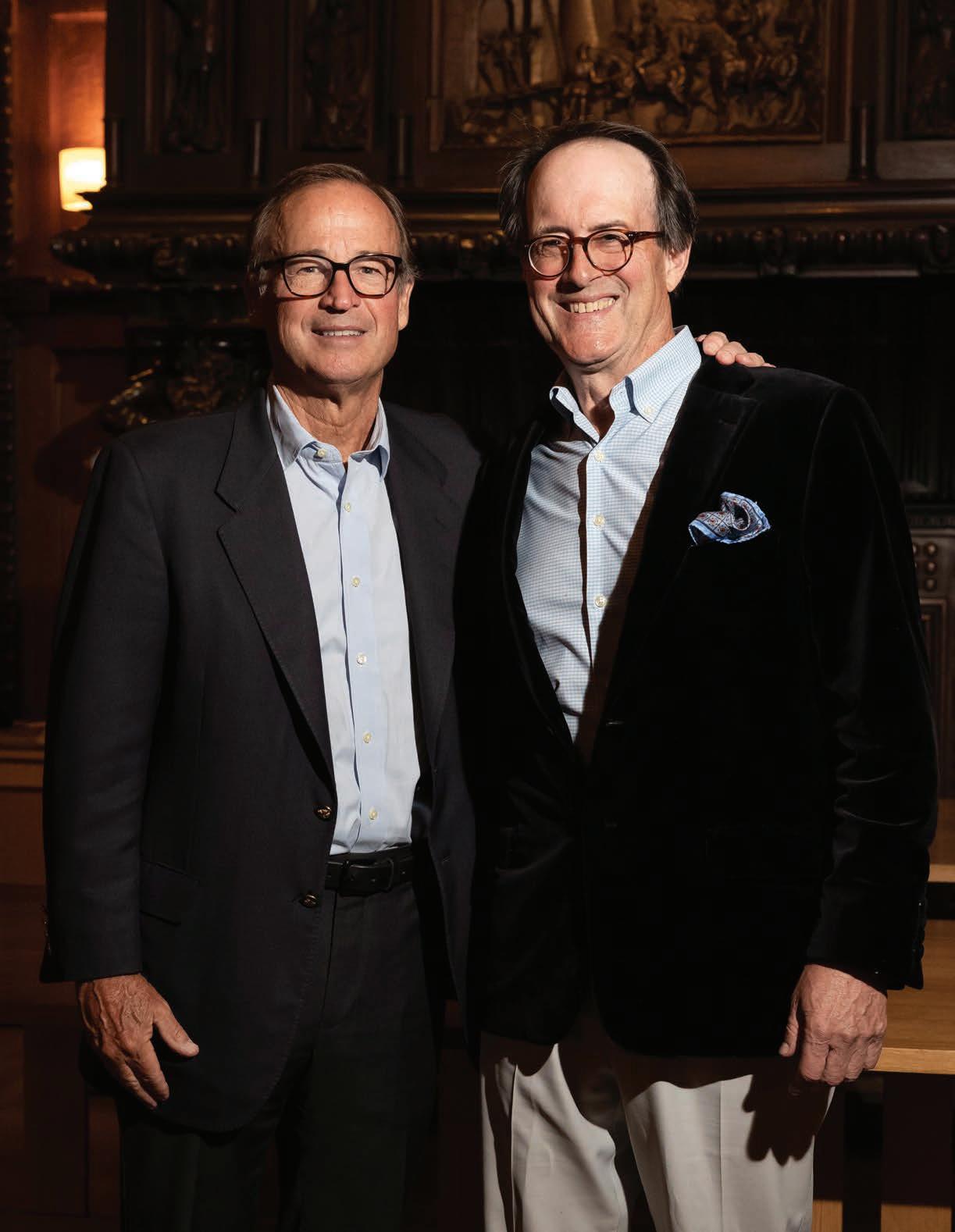 Mayo Shattuck III ’72 and Chip Goode ’72 keep giving back.
Mayo Shattuck III ’72 and Chip Goode ’72 keep giving back.
between them, Chip Goode and Mayo Shattuck, both ’72, have recently committed more than $4 million to support a coming renovation to Shattuck Schoolhouse and financial aid initiatives through the Baker Scholars Fund. The genesis of their incredible generosity and commitment, however, is not recent: Mayo’s father, the late Mayo Jr, was a 1944 graduate and classmate of the late Bobby Lawrence, also of the Class of 1944, for whom Lawrence Auditorium is named; both men served on the Nobles board of trustees for decades. Lawrence served as board president when Dick Baker was head of school; the two forged a lifelong friendship. The younger Shattuck came to Nobles because his father attended—“I don’t recall being given a choice in the matter,” said Shattuck—while Goode arrived on campus because the Shattuck family and his own grew up together. “We were like family, through the highs and lows,” Goode said. Chip and Mayo, who celebrated their 50th Nobles reunion in May 2022, were boyhood friends in Hingham, Massachusetts. Later, they were both boarding students because, Shattuck said, Hingham was considered too far for a daily commute in those days.
Shattuck and Goode—both longtime supporters of Nobles— gathered with old friends at Nobles on the occasion of their 50th. They reminisced about their time on campus and also about the era. “I wish my father were alive to see all of this,” said Shattuck. “He knows up there [that the schoolhouse was named for him].” Shattuck also noted that his father’s classmate, Bobby Lawrence, looked after him after Shattuck Jr. died when Mayo was 19.
“If it weren’t for him, I would never have been here,” Mayo said, about funding he gave for Shattuck improvements in 2000.
“Chip and Laura [Chip’s wife] have actually given three gifts to the school that had a component honoring my father,” Shattuck said.
“The core of the whole experience revolves around the teachers and the classmates. But the teachers first. There was such an enormous amount of visible caring about how we developed as young men—what we learned, how we learned it, and the discipline around it,” Shattuck added. “There was really a very strong sense of values here.”
“We would come into Mr. Bulkeley’s English class in the schoolhouse, and I’d be sitting right here. Mr. B. would come in and throw the window wide open,” said Goode. “He said, ‘Gentlemen, we need to be alert, we need to invigorate the soul, we need to be thinking clearly and critically, we need to be alive. And we are going to keep the windows open to stimulate our minds!’”
“The core of the whole experience revolves around the teachers and the classmates,” said Shattuck. “Back then, we were a very civil place, but not diverse. Now, there’s no way we could be civil, unless we were diverse,” said Shattuck. “Respect for rules and civil discourse has always been displayed everywhere at Nobles, and I don’t think that happens without leadership and a lot of courage.”
“Nobles kids go to great colleges,” said Shattuck, appreciating the strong outcomes of Nobles graduates. “We are teaching future leaders here who can really make a contribution in the world. It’s a virtuous cycle.
“I talked with one teacher today who said to me, ‘I realized that this place, more than any I’ve ever known, really respects the teachers.’ He said there’s institutional respect for what teaching really is. That really resonated with me.”
Baker and the Class of 1972 overlapped for one year. “If you can get through Baker’s English class—well, that’s a real grow-
baker s cholars Fu N d
Dick Baker was a scholarship student when he attended Kent School and Harvard. Baker’s experience as a young man is in alignment with a major strategic priority of Nobles to improve access and affordability.
Initiated with a seed gift in 2013 by an anonymous donor, the Baker Scholars Fund was launched in 2022 on the occasion of Dick Baker’s 50th year of teaching at Nobles by Mayo Shattuck ’72 and Laura and Chip Goode ’72 at their 50th reunion. As a financial aid recipient himself, Dick Baker is passionate about how much he values financial aid and its impact on transforming the lives of young people. There is no better way to honor Dick’s tremendous career and life than through this vital step in investing in access and affordability to secure the future of Nobles.
s hattuck s choolhouse
As part of the strategic planning process, Nobles is conducting a complete facilities audit to identify spaces that need attention and where opportunity lies for new spaces on campus. A renovation of Shattuck Schoolhouse is being evaluated as part of that audit. The Schoolhouse, which was built in 1922, was refurbished in summer 1997 and named by the younger Shattuck in honor and memory of Mayo “Jim” Shattuck Jr., longtime trustee and board treasurer. According to Joyce Eldridge’s history, In Their Voices, the improvements then included the installation of an elevator for accessibility, a broadening of what had been a narrow and dark main hallway, and the addition of new windows on the west side of the building. Goode made a gift for further improvements in 2000.
26 Nobles WiNter 2023
the initiAtives supported by $4 million+ in gifts from shAttuCk And goode
ing-up experience in a variety of ways,” Goode said. “He made you probe and think like nobody else had you do before. And that stays with you.
“To have people like Dick Baker, Eliot Putnam, Ted Gleason, John Paine and many more as teachers was transformative for both of us,” said Goode.
“We wanted to emulate the faculty. Mr. Putnam was a very intimidating person to us, but we knew that he was leading with a set of values that represented the school,” said Shattuck. “My father had had him as a teacher. Putnam shared enduring values, and we had teachers who really wanted to teach and wanted to be there. They had a lot of respect for us, and we were, at times, moronic young men. But we were eager to learn—and keep in mind that our era was 1968 to 1972. There was a lot going on.”
Shattuck and Goode were young men when the Vietnam War was raging during much of their high-school years. What must it have been like to be studying Latin, eating cookies in faculty rooms, and wondering whether you might have to go to war?
“It was a crazy time in history,” Shattuck said. “We literally had some people at school going to Woodstock and reporting back. And we were all nervous about getting our draft numbers, knowing that we were potential candidates.” Both Shattuck and Goode received draft numbers, but the war ended before they were drafted.
The 50th Reunion of the Class of 1972 was not just momentous for Goode and Shattuck. The May 2022 event inspired 90 percent of the class to make a gift. The N’72 50th reunion committee; George Colt, Art Depoian, Goode, Peter Mansfield and Rob Ryder led fundraising efforts for the class. The class gift totaled nearly $4.5 million. (See sidebar for more on how they directed their gifts.)
“Being philanthropic gets a little bit easier when you get more and more knowledgeable of what you’re trying to actually get accomplished,” said Shattuck, noting that he has honed the focus of his giving to organizations that have deep meaning for him and his family.
“The Dick Baker connection is an obvious one, given that it was his first year and our last year,” he added. “Chip thought this was a way that we could make something incredibly special out of the 50th Reunion.”
Like Mayo, Baker also lost his father at a young age. “Baker was a financial aid recipient in high school and in college,” said Katie Coggeshall ’88, director of leadership giving and liaison to the 50th Reunion class. “Baker often refers to himself as ‘the poster child for financial aid’. It is so important to Baker that Nobles remain financially accessible to all of the students we want to enroll. And it is so personally meaningful to him now that Mayo and Chip have tied his legacy to an effort to help ensure this.”
“I’m sensitive to tuition and affordability,” said Goode. “We can do a lot more to make sure that we embrace people from
all different backgrounds, all different neighborhoods, and that students can come here for opportunities that allow them to go on and do great things like Dick has done.”
Both men said that the priorities of financial aid and support for teachers are appealing. “To keep Nobles thriving and growing, you know, it’s going to have to change, and it’s changed a lot in 50 years.” Shattuck said. “That’s the way the world works.”
“I just want to set the example and galvanize future classes, future alums, that we can do this,” Goode said. “We should do this. It’s our obligation to do this.
“My kids know that it’s expected of them,” said Goode, whose children are Rick Goode ’08, a trustee, and Eliza Goode ’10. “As Dick said to me many years ago, you’ll be judged by decisions you make when nobody’s looking.” lA rgest r eunion Cl A ss g ift e ver
Reunion 2022 was a record-breaking year for the Class of 1972 50th Reunion class gift, with $4,403,050 and 90 percent participation.
In addition to three planned gifts, contributions from the class include:
Annual Nobles Fund Baker Scholars Fund
Shattuck Schoolhouse Renovation Blair Crawford Crew Endowment Fund
Nobles Diversity Equity and Inclusion Resource Endowment Fund in honor of Mark Glover ’72 and Kevin McCarthy ’74
The Grogan Family Assembly Speaker Fund in honor of Paul Ayoub ’74 and Jeff Grogan ’74
The Ben Snyder Achieve Accelerator Fund in honor of Ben and Sarah Snyder
The William C. Bussey Endowment Fund in honor of Bill and Nan Bussey
Alex Gallagher ’90 Grit and Grace Scholarship Fund in honor of Joe Day and Alex Gallagher ’90
Class of 1951/W. Latimer Gray Jr. Scholarship Fund in honor of Eliot Putnam and Latimer Gray
The William W. Biddle Outdoor Leadership Fund in honor of Nick Nickerson
Nicholas F. Marinaro Chair
Head of School’s Discretionary Fund in honor of Dr. Cathy Hall
Robert P. Henderson Jr. ’76 Head of School Chair
For a full list of participating class members, go to page 53.
Nobles WiNter 2023 27
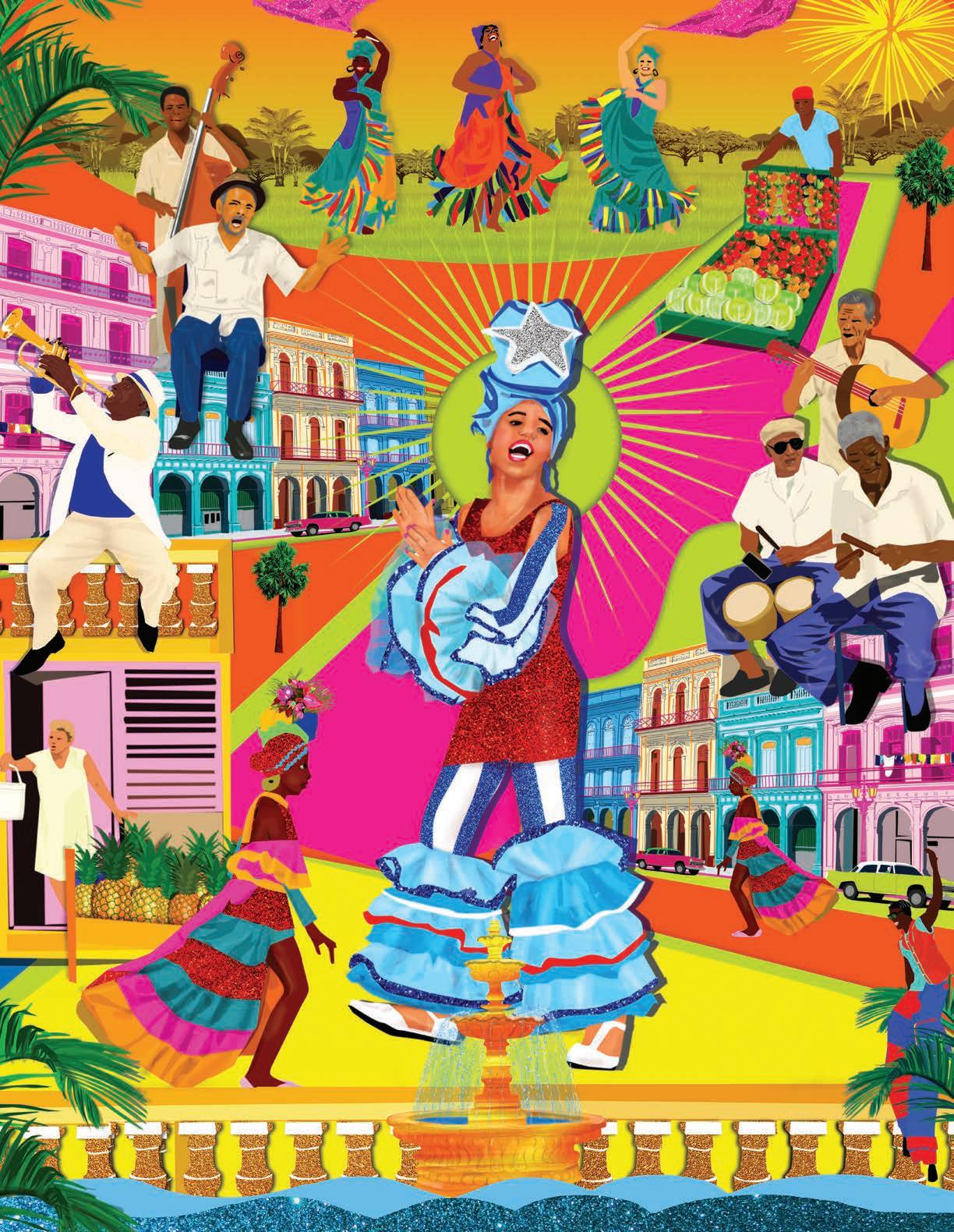
Curiosity is contagious at Nobles—the exhilaration of chasing questions that tumble forth like dominoes and end in discovery. Each assembly brings a showcase of rousing songs and inspiring personal stories, followed by intellectual epiphanies in class and finding out something new about friends at lunch in the Castle. Afternoon program is another arena for
shedding complacency, onstage or on the pitch. Graduates and current students praise faculty for their fervor in their specialties, an enthusiasm that is catching. Likewise, so many educators join the profession to remain perpetual scholars themselves. Every day, learning transpires while tackling thorny topics in the classroom, supporting advisees, or
critically reworking a syllabus. Each year, French teacher Mark Sheeran administers a Nobles program through which 80 to 90 teachers transcend Nobles’ walls to become students themselves. Their professional and creative pursuits, within and beyond their disciplines, give them energy and empathy for a deeper connection with students. Here are some of their experiences.
Nobles WiNter 2023 29
By Paul lieBerman, music Faculty |
illustration By lyne lucien IntroductIon, portraIts and faculty profIles by KIm neal
THEY CALL HIM ELEGUA ORISHA, the owner of roads, the deity of crossroads, paths, chance and change, and a silent messenger of the One God—whether the Yoruba Olofi or Oludumare or the Christian God. Elegua holds the keys to the past, present and future. And he is a significant figure in Santeria, Candomble, Umbanda and other Orisha faiths brought to the Americas by enslaved Yoruba and often syncretized with Catholicism. I had never heard of him before this summer’s 10-day professional development trip to Cuba to study AfroCuban history and music. Still, it seems he might explain a lot.
Since my youth, my greatest musical idols have been African American, and I’ve felt their call my entire life. Contemplating their towering mastery, intellectual brilliance and universally beloved soul power in the same frame as the crushingly racist environment they’ve lived and worked in from their first breath to their last has always inspired me to try to honor them through my work.
Seemingly magically, doorways have swung open at key points along this journey. In those moments, the universe appears to whisper, “Go ahead.” Thus I found myself living as a studio musician in Brazil, on the road through the American South with Jaimoe, the Black Mississippi-born co-founder of the Allman Brothers Band, and studying with a Yoruba Ph.D. ethnomusicologist while in jazz graduate school at UMass Amherst.

My prior experience focused on the relationships between Brazilian and American music. But what I studied with Professor Olabode Omojola zoomed me out to a higher-level view, centering traditional West African culture and its powerful and hidden presence throughout the Americas. As I followed this trail, more and more of what I uncovered cried out, “Cuba! If you want to understand, Cuba is key!” Because while Brazil has the largest number of people of African descent outside of Africa, Cuba has the highest percentage and the most recently arrived of such culture bearers.
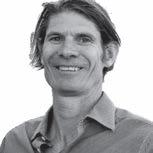
I had been on the fence about applying for a Nobles professional development grant for this trip—hungry for downtime after a challenging school year and somewhat intimidated about slogging alone through the Caribbean summer heat in a Communist dictatorship. Even though as a Portuguese speaker I could manage basic communications in Spanish, there was anxiety there, too. But I have learned to give a lot of weight to things that Mark Sheeran, who administers faculty grants, offhandedly says, and I kept hearing his voice telling me, “You really should do it.” I worked with an academic travel company that put together an intensive itinerary custom-tailored to my quirky interests, and I was thrilled to receive the grant. As for my anxiety, life has taught me to view the scary things as bull’s-eyes to head straight for because they are always where one finds the juiciest growth.
“
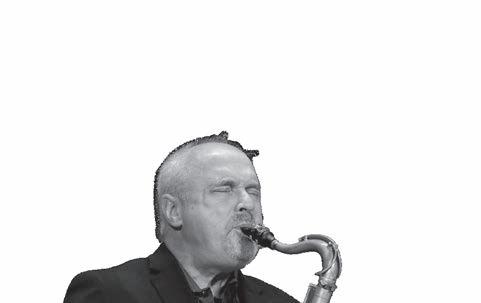
They did a really good job of making connections you might not ordinarily make, like one year when we were reading some ancient stuff, but the professor paired it with a contemporary novel that I wouldn’t have naturally read on my own. Little nuggets of information that you learn from the professor or others in the class can help you see a work like The Odyssey in a new way. You can’t help but think, “I don't know if I would teach it this way,’ or ‘Wow, that's a really cool way of doing it.’ And then you bring some of that back to the classroom.”

30 Nobles WiNter 2023
GEORGE BLAKE Classics department head, assistant cross-country coach, advisor OPPORTUNITY Classical Association of New England (CANE) Summer Institute at Brown University, Rhode Island, 2015–2019
I posted about the trip on Facebook, inviting suggestions from musicians, historians and art historians about people, places and things I should try to see while there. A wave of information came back to me. A message from my old boss, Brazilian jazz star Flora Purim, enhanced a growing sense of mystery. “Dear, I know a lot of great musicians and teachers who can take you places that you wouldn’t be able to go by yourself. The locals’ secret

places.” Other musicians chimed in too, and a friend connected me with the brilliant scholar Ned Sublette, who literally wrote the book on Cuban music—Cuba and Its Music: From the First Drums to the Mambo. Another of his books, The World That Made New Orleans: From Spanish Silver to Congo Square, was already a foundation of my cross-curricular teaching at Nobles. And here I was about to have a 45-minute phone conversation with him!
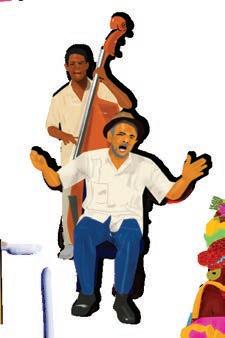
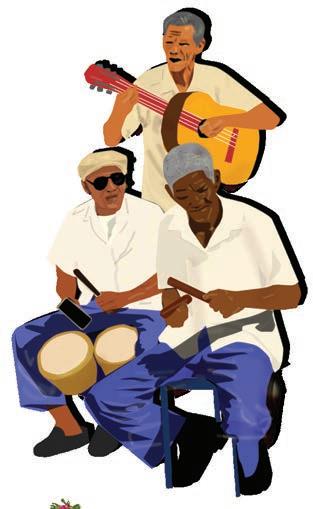
Alarmingly, when I told him my plans, he led with, “I don’t think it’s a great idea for you to go to Cuba right now.” The combination of weaknesses in their system and the strangling U.S. economic blockade has been an ongoing problem. The pandemic and an energy crisis due to the situations in Russia and Venezuela have only exacerbated things, so times are historically tough there. I was to arrive on the first anniversary of the serious
“In 2020, I was slated to co-present in Greece on the teaching of writing with one colleague who is a UMass Boston professor and another who teaches at the elementary level. With Covid, we’re now rescheduled for May 2023. I know the UMass Boston professor because she’s also the director of the Boston Writing Project; I’m a member of their advisory board and have run workshops on teaching history and writing. It’s actually nerve-wracking to think about standing up there talking about research that I’ve done in terms of how I teach, and using my students in the case study. Though it’s a very small sample, because I teach at an independent school, I believe the methodology I use can be applied to other levels: high school, middle school or college. So, I’m excited. Argumentation is one of the best ways to improve students’ critical thinking skills on different levels—when they’re talking and when they’re writing—because they have to make arguments, they have to weigh arguments, they have to evaluate arguments, and they have to defend arguments.”
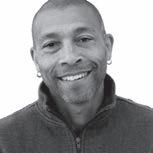
Nobles WiNter 2023 31
ORIS BRYANT History and social sciences faculty; advisor; boys varsity basketball coach; FAC (faculty advisory representative); Mock Trial Club advisor OPPORTUNITY Athens Institute for Education and Research, 25th Annual International Conference on Education, Greece; rescheduled from 2020 to 2023
s one thing to be an adult student who teaches themself and learns from peers. It’s another to go back to square one and study two new instruments in a foreign language under advanced professionals.”
disturbances that prompted a heavy government crackdown. “And Cubans love anniversaries!” Ned warned. Nobody knew what might go down.


On the other hand, I also reached out to Orlando Maraca Valle, the Paganini of Cuban flute with whom I had worked once before. And he swung open another door by inviting me to record with him (which I did).
I spent six days in Havana, being cared for by the most wonderful hosts. The old cars are the most famous manifestation of Cuba’s curious back-in-time aspect. But in the almost complete absence of the corporate marketing-driven consumer culture and systems that characterize the developed world, a subtler, more beautiful back-in-time part of Cuban life is the primacy of personal relationships. And so those thoughtful, caring hosts have become friends for life.
In the mornings, my guide, Fidel, a brilliant professor of history with an extraordinary breadth and depth of knowledge, taught me about Cuban/AfroCuban history, religion, culture and arts. We visited Old Havana and saw churches, forts and other historic sites. But Fidel also wanted to show me aspects of “real life,” so he led me inside some solares—aging urban mansions divided into apartments for 10 or so families, who all share one communal sink and one bathroom. He showed me people standing in line for hours in the hot sun to purchase their ration of basics like bread and chicken. We also visited a
famous living museum of Afro-Cuban culture called El Callejon de Hamel (Hamel’s Alley), located in the Cayo Hueso area of downtown Havana, and the Fidel Castro Center, a new museum about his life.
I tell my students that all musicians are students for life. But it’s one thing to be an adult student who teaches themself and learns from peers. It’s another to go back to square one and study two new instruments in a foreign language under advanced professionals. The idea was to study two percussion instruments—congas and timbales—to learn about the complex and elaborate structures of Afro-Cuban music. We had built nine hours of private lessons into my itinerary. My teacher Aisar Hernandez Segundo, a bassist, composer and bandleader, had two of his percus-
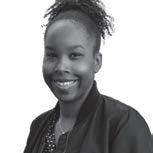
sionists, Geosvany (congas) and Victor (timbales), join us in his rooftop terrace studio for all nine hours of lessons.
We began with the marcha on the conga—the basic four-beat pattern with two eighth notes on each beat—which serves as part of the rhythmic foundation of the music. Aisar stressed the importance of the mental comprehension of the marcha and its elements, and Victor emphasized the importance of hearing the sounds of the different strokes in my head to lead the hands to sing. And they assigned me homework to practice on the tabletop back at my casa that night. When I returned for my second lesson, we built on the previous day’s foundation to learn how to play the marcha on two congas. I also learned the cascara (shell) and contra-campana (low
“This summer, I attended the JEA Institute, a three-day conference for high school journalism educators and advisors to network and participate in advisor-specific training. The conference was incredibly helpful to me as one of the co-advisors of the Nobleman; I participated in exercises designed to put the advisor in the shoes of the student journalist and had great discussions with my peers about the landscape of student journalism and the challenges facing student newspapers today, such as lack of funding, low readership, and mistrust from teachers and administrators. I’m hopeful that I can use the things I learned while at the JEA Institute to empower this year’s Nobleman staff to tackle important issues in the community that appeal to our audience while fostering strong relationships and building trust within our community. I also look forward to doing more in the classroom this year in the way of curriculum to help students become active scholastic journalists. I recommend the JEA Institute to any broadcast, journalism or yearbook advisors. It was such a great learning experience and a great opportunity to connect with other educators.”
32 Nobles WiNter 2023
HEIDI CHARLES Archivist; librarian; Nobleman student newspaper co-advisor OPPORTUNITY Journalism Educators Association Advisor’s Institute, New Orleans, Louisiana, summer 2022
“In addition to everything I learned musically, it was great to be reminded of how it feels to be a student.”
cowbell) patterns on the timbales. We ended with an extended session of me playing a pattern on timbales while the two percussionists went to town on the congas and bongo. It was like riding a bucking bronco as they did their best to throw me off. Taking turns, they fed off of each other as they swerved around the time in incredible, increasingly complex ways. Even as I felt my head might explode trying to hold it together, it was so much fun!
In addition to everything I learned musically, it was great to be reminded of how it feels to be a student. I struggled to comprehend, absorb and execute the new material, working at the limits of my ability. And my team of teachers’ warm, supportive, respectful and friendly treatment was so important to my small successes.
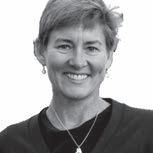
The scholar who questioned the timing of my trip also told me, “Matanzas is the most important place. It is the great transmitter of Africa in Cuba.” Two hours east of Havana by car, its large bay and proximity to the sugar plantations made it Cuba’s primary port for the importation of African slave labor. With the fabulous riches of the Cuban sugar industry, Matanzas became a significant nexus of artistic creativity.
In Matanzas, the San Severino Castle, a historic fort, contains a fascinating collection of replicas of Orishas. Seeing them life-size, vivid in their traditional outfits and colors, and holding their traditional objects was a powerful way to make their acquaintance. It was an eerie moment coming face-to-face for the first time with
the Ibeji Orisha, the twins after whom I had named my CD 12 years previously.
Elegua Orisha, who had first caught my attention in a wood carver’s shop in Havana, was also here:
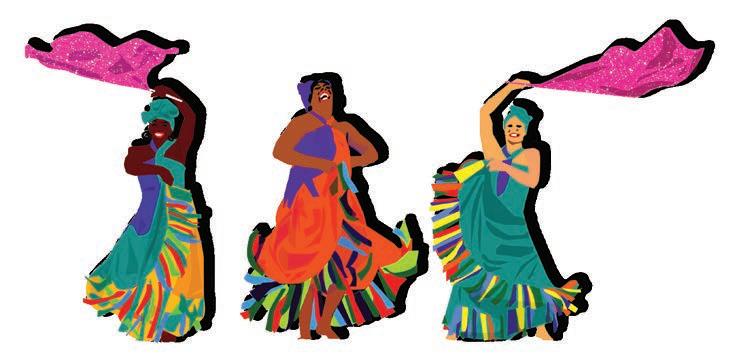
The fort’s art gallery was closed to renovate the stairs that led down to it. However, after the museum director observed how I interacted with the Orishas, with the displays of drums used in their worship, and with other items like manacles revealing the brutal treatment of the enslaved Africans, he told Fidel that we could go down to the gallery. A guide offered poignant details about the heart-breaking artistic evocations of that same brutality—a powerfully disturbing experience and a fascinating education.
Back in Havana that evening, Dalila, who painstakingly oversaw all aspects of my visit to Cuba, took me to the Fabrica de Arte Cubano (Cuban Art Factory). It’s an industrial building converted into hip spaces for the presentation of performing and visual arts. We watched an outstanding performance of contemporary, Cubanized versions of pieces by Bartok, Ravel, Gershwin, Piazzolla, Prokofiev and Ligeti, and ended the night at a jazz club by invitation of Maraca. Despite my protests that I hadn’t played for a week, he demanded I bring my flute and sit in for a descarga (jam). Then he blew me away over mojitos with his world-class, one-of-a-kind flute playing.
The next day, Dalila and Estéban—the warm and philosophical driver who ferried me around Havana in his vintage Russian
OPPORTUNITY
been doing and coaching outdoor activities for many years now, but with the departure of Nick Nickerson, Nobles’ resident outdoorsman, it felt important to up my game with some quality training. Nobles supported me in taking this course, which is similar to one I did 20-plus years ago with Project Adventure, when I started Middle School Outdoor Adventure (MSOA), and it will support me in pursuing the Level II training and certification. Training like this both ensures the safety of the participants in MSOA and allows Nobles to open up its low- and high-ropes course elements for academic classes, athletic teams, clubs, EXCEL groups and more. I’m excited to work toward integrating more experiential learning into our academic school years. MSOA creates a sense of team based on trust, personal challenge, and fun using the great outdoors as our classroom/playground.”

Nobles WiNter 2023 33
JENNY CARLSON-PIETRASZEK History faculty; middle school outdoor adventure coach; advisor
Five-Day Adventure Basics Training with High 5 Adventure, Vermont, 2022
“I’ve
Lada sedan—brought me for a personal tour of the Abdala Recording Studio. The largest of the three different studios, Cuba’s finest, is big enough to record the Cuban National Symphony. It would be a dream to return one day to record there.
Cuba’s second-largest city, Santiago de Cuba, lies in the Oriente region on the eastern end of Cuba, across a bay from Haiti and Jamaica. Due to French and African influence brought by refugees from the Haitian Revolution, its music and culture are quite distinct from Havana’s. When my flight was canceled, the only option was a 12-hour drive in a private car. My driver, Jose Enrique, also worked as a dance instructor and threw in a complimentary 10-hour seminar in salsa, son, merengue and bolero.
Like Fidel in Havana, my guide, Alex, was a college professor—of art history— and knowledgeable about a comparable breadth and depth of everything cultural and historical in Santiago de Cuba and its connection to the world beyond. We started with a walking tour of the historic center of Santiago de Cuba. As in Havana and Matanzas, Elegua seemed to be at work here too. The first example was bumping into a “Conga,” a street procession occurring because it just happened to be the first day of Santiago’s Children’s Carnaval. The Black joy radiating from the costumed children lovingly accompanied by their parents and dancing amid the oppressive heat and surrounding poverty to the intense percussion music and
corneta china (Chinese trumpet) was so powerful it brought me to tears. Stunned, I asked Alex whether he’d planned our itinerary around seeing the Conga, and he replied that no, we had just gotten lucky.
After visiting the Bacardi Museum of Art, we encountered another street performance of a style called Rumba Yambú. As the group played and sang, electrifying solo dancers emerged—first an ensemble member and then an elegant cigar smoker from the small group of onlookers.
That evening we attended a performance at the Casa de la Trova by a local son band. Son, a blend of Spanish and African elements, arose in this area in the late 1800s before becoming Cuba’s most popular musical style, then flowing out to Europe and the U.S.
The next day began with a combination ceramics studio and social project visit. Its founder, a visionary woman named Xiomara Gutiérrez Valera, whose own work focuses on ecological and women’s issues, received us. It invites accomplished artists for residencies, then sells some of their work to help cover costs. These artists also teach young adults, who then go into the schools to teach the younger children. There is also a ceramics group for older women that doubles as a mutual support network.
From there, we went to the Casa del Caribe, dedicated to studying the African diaspora in the Caribbean. Alex had previously glowingly mentioned his mentor, an older professor named Carlos Lloga

Dominguez, and lo and behold, when we walked out, there he was, sitting on a bench in the garden. We approached, and my jaw dropped as he gave a brief overview of his life’s work teaching Cubans about how African their culture is, no matter how white their skin is. I told him that the same work had become a passion of mine in the United States, where that same truth has been more deeply hidden.
He asked when I was leaving Santiago and frowned on hearing that it was the next day. He said there was a person I should meet, thought for a moment, pulled out his phone, and set up an audience for us in a half hour. As we were saying our goodbyes, he asked my name, and when I told him, he looked at me and said, “You are Jewish.” I said yes, and asked if he was. He replied that his grandmother’s maiden name was Simon and that although that part had gotten diluted through the generations, he was intrigued by it.
The mystery person he wanted me to meet was Dr. C. Enrique Orozco Rubio, a professor of anthropology, a Babalaô (high priest of Santeria), and a bandleader whose group won first prize at this year’s Havana Festival. The story of his band began with him training drummers to participate in the Santería rituals he leads. He noticed that participants in the rituals would hang out afterward and dance to popular music styles, and he wanted to expand the reach of his ritual musicians into a secular space. Much of our conversation was his description, translated by Alex, of contem-
“When I started writing more college recommendations, I wanted to finesse my writing skills, so I decided to do something completely outside of my comfort zone. I took a Harvard Extension School course on the comic novel, specifically because the seniors were going to be reading On Beauty, by Zadie Smith. That year, for Nobles’ summer reading, I ended up leading a group discussion for On Beauty. Nobles students write a lot, and they talk about their writing, and they often stress about it. I wanted to share my students’ experiences in disciplines that are very different from what I teach—I have loved talking with them about it. I’ve also been taking courses to get a master’s in chemistry education, to add to my master’s in education. It has put me in touch with chemistry teachers all over the country. I’ve also done a lot of conferences on learning differences, which have been very practical. But what I love about the Nobles professional development program is its willingness to have teachers take a course of deep interest to them, to just grow intellectually.”
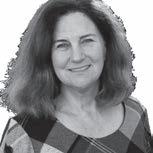
34 Nobles WiNter 2023
SHEILA MCELWEE Science faculty; advisor; faculty co-advisor for Model United Nations OPPORTUNITIES Writing course on the comic novel, Harvard Extension School, Cambridge, Massachusetts, 2019. Various conferences on learning differences. Pursuing master’s degree in chemistry, Illinois State University
porary scholarly debate regarding Yoruba history in Africa and the New World. He described how the Anglican desire to “save” their souls brought about the imposition of distorted ethnocentric perspectives onto the Yoruba. He also spoke of the racism of the Yoruba toward whites, whose skin they saw as a sign of unworthiness of being blessed to receive the sun. Pretty heady stuff for a double-ricochet chance encounter!
My final meeting of the day was with percussionist, bandleader and teacher Giraldo Garrido. He used the congas, bongo, guiro and timbales to walk me through the history of Cuban music, including contradanza, danzon, son, bolero,
cha cha, timba, Mozambique and songa, as well as the relationships between Cuban music and Brazilian samba, American jazz and Afro-Latin jazz.
Before leaving, I had wanted to visit the Cathedral of the patron saint of Cuba, the Virgin of Charity of Copper, that Fidel had told me about. It turned out that Miguel, our driver the previous day, had spent four years working in Brazil and spoke fluent Portuguese, so Alex arranged for him to pick me up for the half-hour drive to the Cathedral. A community band with woodwinds, brass, strings and percussion was performing as we drove past a central square on our way out of town. I quickly asked Miguel if we could pull over
for a moment for me to hear what they were playing—a danzon, Cuba’s national musical style. I later learned the piece was Rubalcava’s “El Cadete Constitucional,” published in 1951. And within seconds of my walking up came the part where 70 years previously, the composer had woven in the “three cheers for the red, white and blue” section of John Philip Sousa’s “Stars and Stripes Forever.” I could almost see Elegua winking and smiling.
Flying back to Havana that night and to the U.S. the next day, I was deeply touched by the spirit and hospitality of the Cuban people. Despite their suffering, they received me warmly with generous and creative hospitality.
“At POCC, we compare curriculum and pick up ideas from other schools to bring back to our community and best support our BIPOC [Black, Indigenous, people of color] students—like celebrating Black pride, or learning about new books on race, class and justice. One year, I was able to do a master class with author Joy DeGruy about post-traumatic slave syndrome, which made me realize how much I don’t know and gave me a completely different lens through which to look at culture. Hearing inspiring speakers together and then sharing our thoughts over a meal just creates a very deep and meaningful connection. It has also given me really good professional friendships with my colleagues that I rely on throughout the year to sustain me. It’s soul-filling, especially in December! You come back and you’re fired up. It’s also amazing how impactful it is for the kids who go to SDLC, and to get to interact with them. They’re in a group where they’re no longer underrepresented, and they come back empowered to create new spaces and new conversations for other students, by using their voices collectively.”

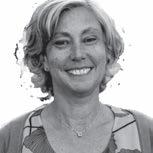
Nobles WiNter 2023 35
CASSANDRA VELÁZQUEZ Senior associate director of admission; director of outreach; advisor; JV volleyball assistant coach OPPORTUNITY People of Color Conference (POCC), various U.S. cities, 2004, 2005, 2007, 2010, 2011, 2013, 2014, 2016, 2019, 2021. Annual gathering for U.S. educators of color, in conjunction with SDLC (Student Diversity Leadership Conference), to which Nobles also sends student representatives
“Despite my protests that I hadn’t played for a week, he demanded I bring my flute and sit in for a descarga. Then he blew me away over mojitos with his world-class, one-of-a-kind flute playing.”
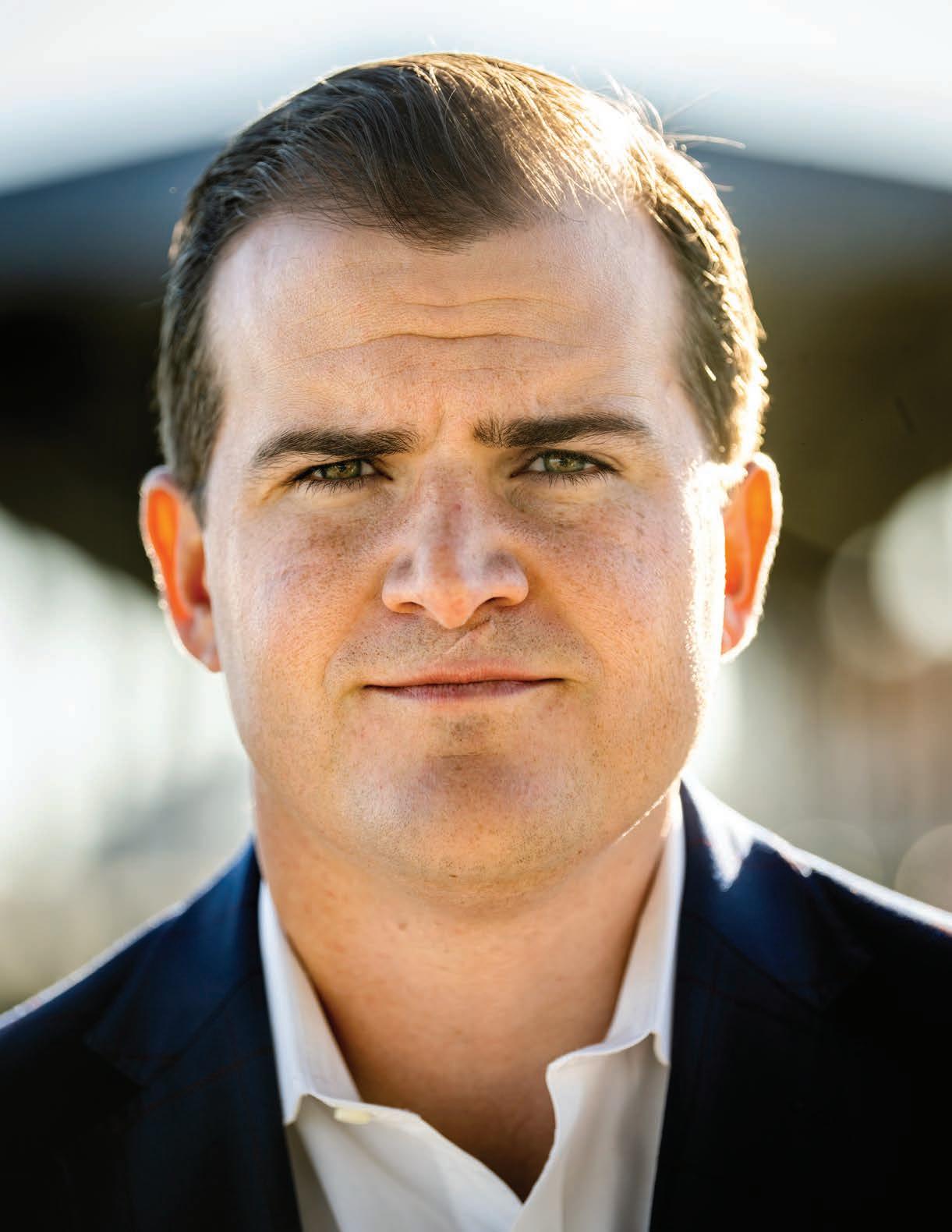
Prior to Chris Steele ’08, not a single player on the Nobles boys varsity hockey roster hailed from the Cronin Memorial Rink in Revere, Massachusetts. How is Steele ensuring that this connection, and all that it represents, continues? By way of his own character, for starters, and by giving back to Nobles—the place he credits with changing the trajectory of his life.
BY
LACING UP AND LEANING IN
Anne McMAnus
Nobles WiNter 2023 37
photogrAphY BY jAred leeds
As a squirt in the Revere youth hockey program, standing only a head taller than the boards, Chris Steele never imagined that he would spend his high school years commuting 30 miles through Mass Pike traffic to arrive at the foreign landscape of the Nobles campus for 8 a.m. assembly. At the end of his sophomore year at Malden Catholic, with some nudging by the late Jimmy Hayes ’08— Steele’s formidable youth hockey opponent and close friend—that very commute began. This is a story of the impact of the Nobles experience on a boy who was not expecting the chance, and of the ripple effect that springs from the collaboration of great educators and a determined kid intent on embracing an opportunity.
In September of 2022, Steele, along with his classmates and teammates, honored Hayes’s memory by establishing a scholarship in his name. The Jimmy Hayes Scholarship will be awarded annually to a student-athlete from the inner city who embodies the principles that made Hayes so universally loved at Nobles and beyond, with the goal of helping students to learn and grow at Nobles, to continue Hayes’s legacy, and to encourage more people to “be like Jimmy.” Hayes carried himself around campus with a smile, always looking to brighten someone’s day, and his energy, inclusion and love for all within the Nobles community impacted each person he met. Steele’s close friendship with Hayes, paired with his impactful experience as a student at Nobles, made the decision to give back in this way an easy one.
LACING UP
Steele, who started playing hockey at age 3, devoted countless hours of his childhood to mastering the next skill. “I spent almost every night at the rink,” says Steele, “shooting pucks, working on stick handling, and trying to hone my craft. To say I was a ‘rink rat’ would be an understatement. Ray Bourque was my idol—I tried to copy everything he did. The many hours of both structured and unstructured time allowed me to develop and progress in my hockey career pretty quickly.” Even on nights without practice, Steele went to the rink with his mom while she ran the concession stand, using any corner of the building he could to emulate those tricks in Bourque’s wheelhouse, perfecting skills that would eventually lead to new opportunities.
It’s fitting that Steele was a defenseman for his entire hockey career, passing the puck for the assists and doing the work without the expectation of recognition. “I loved joining the rush, powerplay time, and blocking shots on a penalty kill,” says Steele, who came to Nobles as a sophomore, played all three years on the varsity boys hockey team and captained the team with Mike Griffin ’08 in his senior year. Steele then spent a post-graduate year at The Hotchkiss School, from there going on to play at Middlebury College, where he also captained the team as a senior. “Being a defenseman is unique,” he explains. “For the most part, you have the entire ice in front of you, so you get to see the game differently, study opponents, and admire the skill of fellow teammates.”
At age 13, Steele began playing with future Nobles teammates Derrick Pallis, Andrew Glass, and Hayes, all Class of ’08, on Team Massachusetts in the USA Hockey Development Program. Many of the kids on this team had played elite hockey their entire lives, and Steele knew he had to find a way to invest more time in the gym during the offseason in order to be successful at the next level. “I remember weeks on end being sore beyond belief,” he recalls, “and pushing myself in a way that I never had before. The preparation helped round out the mental toughness required to compete at the next level and built a foundation for what you need to do both physically and mentally to prepare for all of the challenges that athletics—and life—throw at you.”
38 Nobles WiNter 2023
PIVOTING
One of the most crucial skills for a hockey defenseman is the ability to pivot—if he cannot effortlessly change direction, it could cost the team games. While the world that Nobles promised was entirely different from what Steele knew, life and practice had made him nimble, and he was ready for the challenge. “Nobles was not on the radar of anybody from Revere, I can promise you that,” notes Steele. “I didn’t even know what the ISL was. I didn’t know what a prep school was. My parents are both very hard-working— my dad worked in construction, and my mom worked in the emergency room at Massachusetts General Hospital. They worked really hard to provide for myself and my two older sisters, but we didn’t have an abundance of money, and my parents had to make many personal sacrifices to give me and my sisters the best opportunity to succeed in life.”
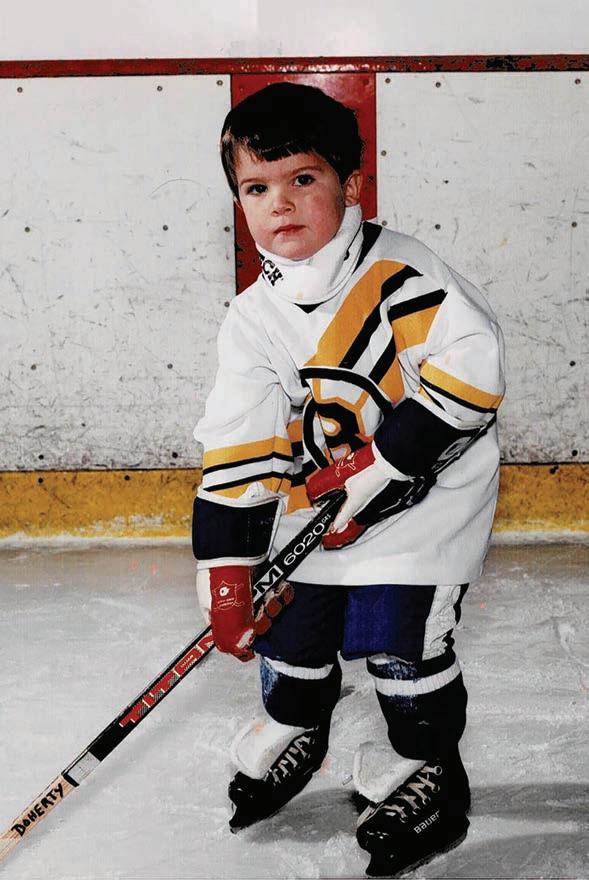
Steele’s Nobles interview was the first leg of his life-altering journey. “When I
stepped foot on the Nobles campus, I was overwhelmed by the positive energy,” recalls Steele. “I felt passion from the teachers, the entire faculty and everybody I interacted with, and I knew that if granted the opportunity Nobles would be a transformative place for me.” While he had his doubts about being accepted, his concerns were allayed in March of 2005. Steele vividly remembers the overwhelming feelings of joy, confusion, uneasiness and fear that he felt on the day he received his acceptance letter to Nobles, a new community of people from a wide range of socioeconomic backgrounds.
Steele recalls thinking, “I’m this kid from Revere going to a prestigious school. Am I going to fit in?” But rather than succumbing to trepidation, he embraced the opportunity. “Some people lean in and others choose to lean out when going through uncomfortable experiences like that,” reflects Steele. “Thankfully, I had a great support system
“It’s funny, I have a hard time remembering what I had for breakfast, but I distinctly remember all of my sophomore-year teachers from Nobles, particularly Maura Sullivan. She was my math teacher, and she broke down a barrier for me. Prior to Nobles, I was always an all A’s and maybe a B+ type student. When I got to Nobles, it was straight C’s across the board, and I just didn’t know how to deal with it. Maura pulled me in and said, ‘Chris, this is what we’re going to do. I know that you’re struggling. I know that you’re working hard. We’re going to meet two times per week, and we’re going to review homework assignments and prep for upcoming tests.’ We had a standing meeting on Tuesday and Thursday every week. It changed the dynamic of how I went through the rest of my years at Nobles, as well as at Middlebury, and it prepared me in such a way to say, ‘Hey, this is a collaborative experience. These are people that care about me and want to see me succeed.’ I found myself seeking out teachers and trying to get homework done in advance to review with them, so she really changed the dynamic and set me up for future successes at Nobles, but beyond Nobles as well.”
Nobles WiNter 2023 39
chris steele on maura sullivan
Steele in 1992, at age 3, during the learn to skate program at the Cronin Memorial Rink in Revere, Massachusetts
“I distinctly remember Alden Mauck, who was my advisor. Mr. Mauck is a special individual. He knew my background. He knew my story. And the day I got there, it was almost like he had a tailor-made model for how he was going to help me be successful at Nobles, and he knew that differed pretty drastically from some of the other students he was advising; he was instrumental.”
chris steele on alden mauck
around me that included faculty, staff, parents and classmates, who welcomed me in and guided me in making the most of the Nobles experience.” It was not lost on those around him that Steele was paying attention and learning how to fully engage in the community. According to math faculty member and head boys varsity hockey coach Brian Day, Steele “went to the nth degree to get the most out of the experience as possible.”
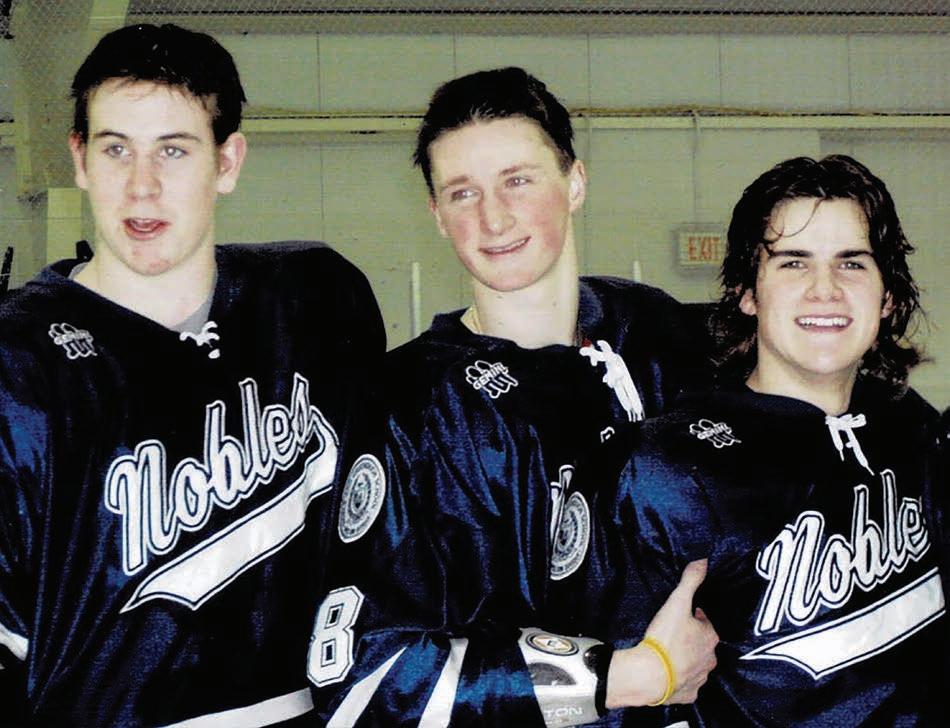
The first-ever recipient of the Janfaza Family Scholarship, established in 2004 by Melissa and Andrew Janfaza ’84 to provide financial assistance to worthy students, Steele holds deep appreciation for their generosity. “It never would have been possible without the Janfaza family,” he explains. “I received a lot of financial aid at Nobles, and without the generosity of the Janfaza family, it would not have been feasible.” It is exactly this type of selflessness that has inspired Steele and his wife Steph ’08, to give back to Nobles. “We want to provide kids the opportunity to experience everything that Nobles has to offer,” adds Steele, “and especially those who come from underserved areas, so we primarily give toward initiatives that support financial aid and helping inner-city kids get the true Nobles experience.”
LOOKING TO OTHERS
For Steele, the true Nobles experience was defined by the relationships he formed and, in turn, by their positive impact on his life. Those who coached and taught him echoed the same takeaway. Day explains that Steele was simply one of those kids you could count on to work hard in any situation. “He was always that guy who would give everything he had,” says Day. “He only knew one way, and that was to give his best effort every time, regardless of whether it was a game or a practice.”
Mentors were everywhere Steele looked at Nobles—in the faculty who taught his classes, in the staff who drove the Zamboni, in the classmates who challenged him to push further, and in the entirety of the extended family that Nobles became to him. “The formula,” explains Steele, “is that you invest in people— you care about people, and the results take care of themselves.” The people who invested in Steele from the moment he arrived at 10 Campus Drive are at the core of his impetus for giving back to the school. “A great group of teachers really took me in, embraced me, and built a strong foundation for me to be successful at Nobles,” he says. “It didn’t take a group; it took an army.” Faculty members were not
40 Nobles WiNter 2023
From left to right, members of the Class of 2008 Jimmy Hayes, Mike Griffin and Chris Steele at the Flood Omni Rink at Nobles during the 2005–2006 hockey season.
the only ones shaping and guiding Steele’s experience at Nobles. Peers from all pockets of the school were also key to the formula, ushering him in and showing him the way. One friend in particular embodied what it meant to embrace the Nobles experience, and that was #11, Jimmy Hayes.
LOOPING BACK
Steele explains that Hayes was the glue that held their class and the Nobles community together. “Jimmy really showed me how to make the most of a place like Nobles. Without the Hayes family and without having Jimmy there my sophomore year, my Nobles experience could have been very different.” On August 23, 2021, Steele, his friends and the hockey community, along with the rest of the world, learned the devastating news that Hayes had passed away unexpectedly. For Steele, who had not only grown up playing hockey with Hayes but had become even closer to him as young men raising young families of their own, the loss was tragic. Their tight-knit group of Nobles friends gathered to think about what they could do to continue Hayes’s legacy.
“We looked at what was the shining light that brought all of us together,” says Steele, “and that was Nobles.” When they took it a step further and considered what made their Nobles experience so unique, Steele explains, “oftentimes we came back to that being Jimmy, and the influence that he had on all of our experiences at Nobles.”
In time, Steele and teammate Mark Gormley ’07 knew what they needed to do. “Mark and I felt extremely passionate about doing something that helped an inner-city kid get the opportunity to experience Nobles. Mark had a blue-collar upbringing, and the Hayeses were the catalyst for his decision to apply to and eventually attend Nobles.” Steele and Gormley hope that the scholarship will enable Nobles to enroll talented inner-city students for whom the experience might be transformational.
Steele explains that the scholarship seeks to support students “who are willing to embrace the Nobles experience, and who understand that this can be a catapult for the rest of their
lives, not just their athletic careers.” It will help the student-athletes like Steele, who, without the Hayes family, might never have known that a place like Nobles was even an option. “I had no idea what was attainable or what was achievable,” says Steele, reflecting on his life before Nobles. “Then I got to Nobles and was surrounded by so much success, and it pushed me to think differently and motivated me in a different way. So, I think getting out behind the four walls of a small community, wherever that may be, and having the opportunity to get a kid on campus to experience Nobles and really push themselves to think differently and achieve greatness, is really what we are aiming to do.” While Steele expects there will be a lot of involvement from the hockey community, he adds, “Given the type of person Jimmy was, it will reach far beyond that. I think that we are going to have the opportunity to do something extremely special, and hopefully send multiple kids per year through Nobles.”
Steele not only gives back to Nobles in the way of monetary donations, but through the donation of his time, volunteering for the 10th and 15th Reunion committees, serving on the Annual Nobles Fund executive committee since 2018, and as the graduate co-chair in 2021 and 2022. Deeply appreciative of his years at Nobles, and of the impactful relationships that he formed as a student, Steele’s approach to giving is thoughtful, intentional and very much rooted in the lessons he gleaned at Nobles about the importance of investing in others.
“There is one thing that I always kind of anchor back to, and I’m excited for the Hayes family to experience it as well,” says Steele, explaining that each year at Nobles, as part of the financial aid process, he wrote a letter to the Janfazas, thanking them for their generosity and telling them about his experience. “As part of our goal with Jimmy’s scholarship, we want those great letters coming from the kids to the Hayes family, describing what Nobles is doing for them and how it is transforming their lives. It seemed like a no-brainer, and we’re excited for a lot of kids to be able to experience Nobles and hopefully change their lives.”
“Brian Day was just incredible to me. He’s a special guy. Just seeing what he has done with the hockey program at Nobles, and what the program has generated— not in the form of Division I hockey players, but in the men he has helped by being a guiding force at a pivotal time in our lives. He taught you what was right and what was important, and almost every time it was, ‘If you’re not taking care of your academics, you’re not going to be at practice, and you’re not going to be at the game.’ There’s a central nervous system, if you will, and that’s Brian. He does a great job of creating an experience for folks that is memorable, and he wants people staying involved.”
chris steele on Brian day
Nobles WiNter 2023 41
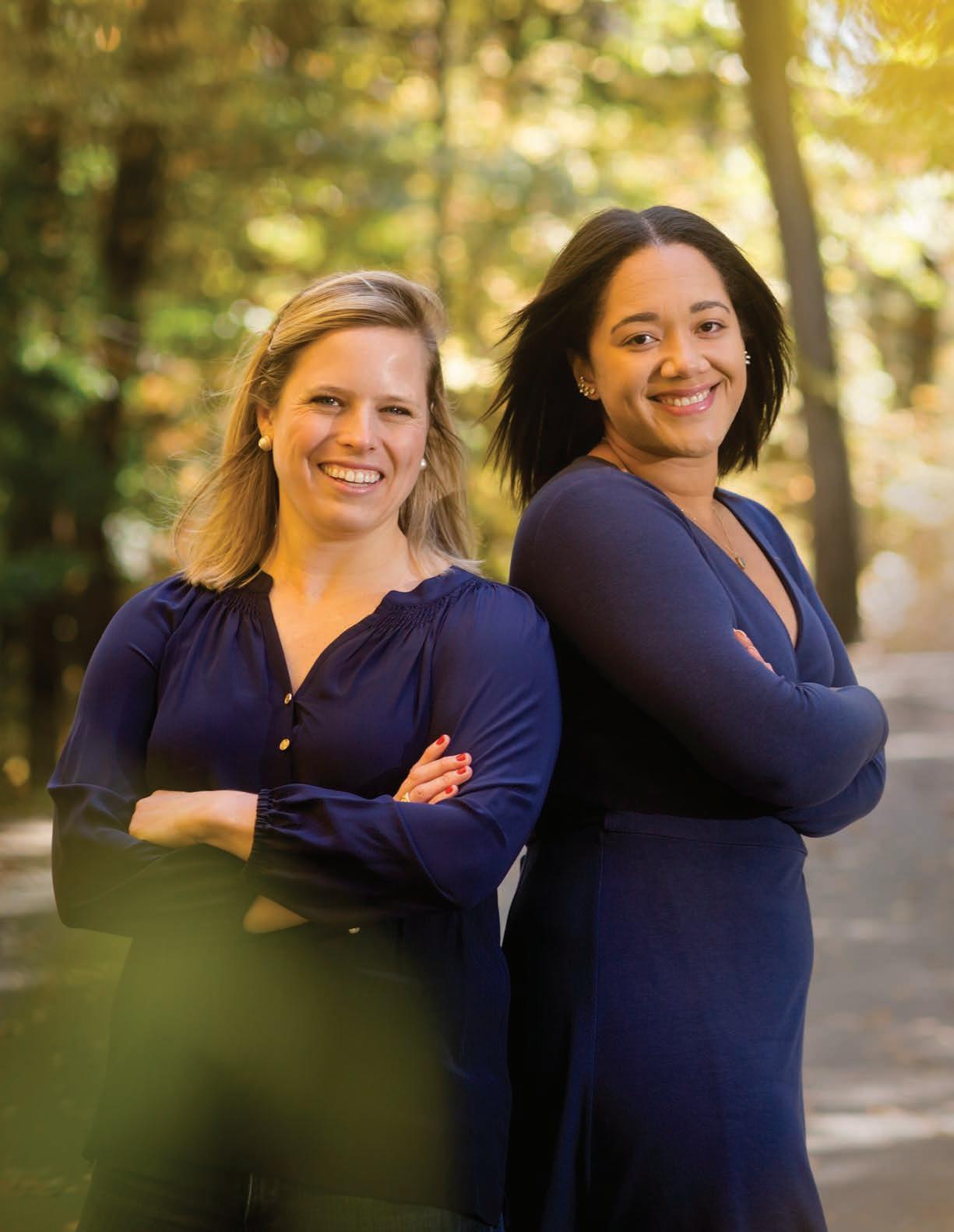
GRADUATE PROFILE
Holly Foster ‘10 (left) and Maya Getter ‘13 (right)
HOLLY FOSTER ’10 AND MAYA GETTER ’13
YOUNG & DEDICATED
BY CaseY Hassenstein | pHotograpH BY katHleen dooHer
Each summer the Development and Graduate Affairs team holds a retreat: a day to come together, reflect on the past year, plan for the future and think creatively about strengthening the Nobles community. For the team’s FY22 gathering, members of the senior administrative team were invited to join in the discussion, as well as Holly Foster ’10, young graduate co-chair of the 2022 Annual Nobles Fund executive committee, and Maya Getter ’13, chair of the 2022 young graduate committee.
What were your biggest takeaways from being a part of the retreat?
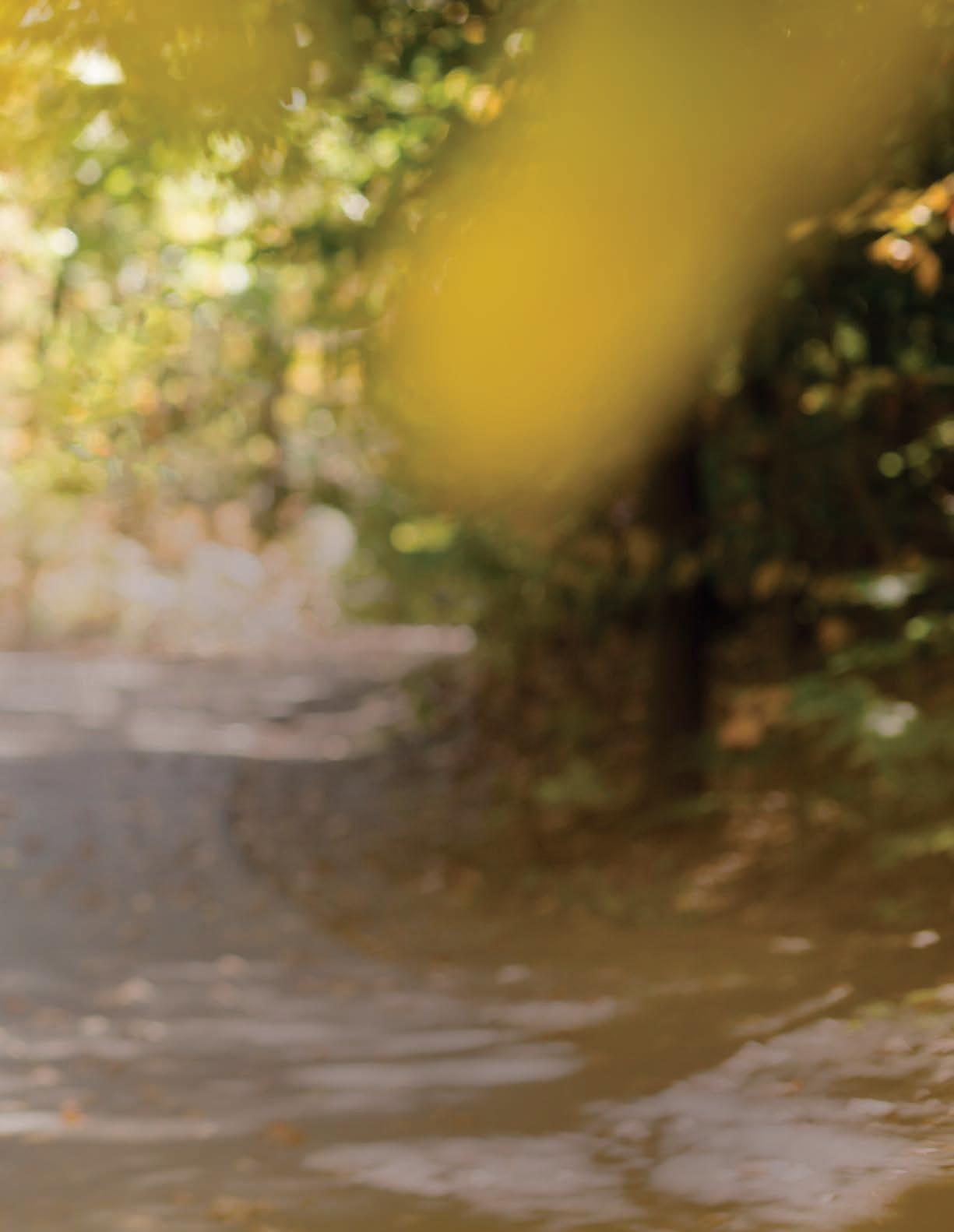
HOLLY FOSTER: I was just so amazed by how the day pulled together, not only the development staff of all levels, from annual fund to major gifts, but also members from the administrative team. I was also struck by the commitment that the whole Nobles team has to better the school and keep moving it forward. There was a real passion in the room around engaging the Nobles community and thinking through the ways to best inspire this group, as well as raise funds to make the student experience better.
MAYA GETTER: It was incredible to me that such a successful team was not about resting on its laurels but pushing to improve. It was also fantastic that they wanted perspectives from young graduates like Holly and me.
What is the driver behind your engagement and volunteerism at Nobles?
HF: I first volunteered for Nobles when I was in 10th grade. My JV field hockey coach exposed me to the world of development, a career I am in today, when she tapped me to make thank-you calls to graduates. I loved it, and when I became a graduate myself, I stayed involved because I love the school and I had an incredible experience when I was a student.
MG: The concept of “leadership for the public good” was instilled in me at Nobles and is something that has stayed with me since my graduation. Today, it continues to guide my life, and it is the reason why I am in public service and chose politics as a career.
Why do you believe Nobles has such a strong culture of philanthropy?
HF: I think [it] is rooted in the history of the school and the values it has instilled in students from its beginning. Nobles exposes students to philanthropy early on. From students calling to thank graduates for their annual fund gifts to encouraging students to give to the Class I gift at the end of the year, students learn the importance of giving back.
MG: As a Nobles student, I remember seeing graduates come back to campus to receive awards or speak at assembly. You saw firsthand how involved they stayed with the school and how much the school meant to them. Also, I think philanthropy and giving back is part of our core mission as a school. You remember the attention the teachers gave to you as a student and what they did to make you feel supported. You cannot help but feel gratitude for these individuals who gave you so much of their time. And the development team does a great job with personal outreach and making you know that each gift counts to support teachers and students today.
What
is your fondest Nobles memory?
HF: I think it would be playing varsity field hockey for Maura Sullivan my senior year. Maura is an incredible coach and person. She created a team where there was a [universal] level of respect. Everyone had a role to play. Everyone was valued and seen as important. You wanted to work hard and fight hard for your coach because she cared about you.
MG: At Nobles I began to suffer from terrible migraines, and I was very light sensitive. I happened to be taking photography, so I spent a lot of time in the darkroom, and John Hirsch was my photography teacher. He let me use the darkroom and taught me how to set it up and tear it down—making sure I was safe, of course. He knew I was struggling and wanted to help in any way he could. He gave me a space, and to this day, I still love taking photos and practicing photography.
NObLEs WINTER 2023 43
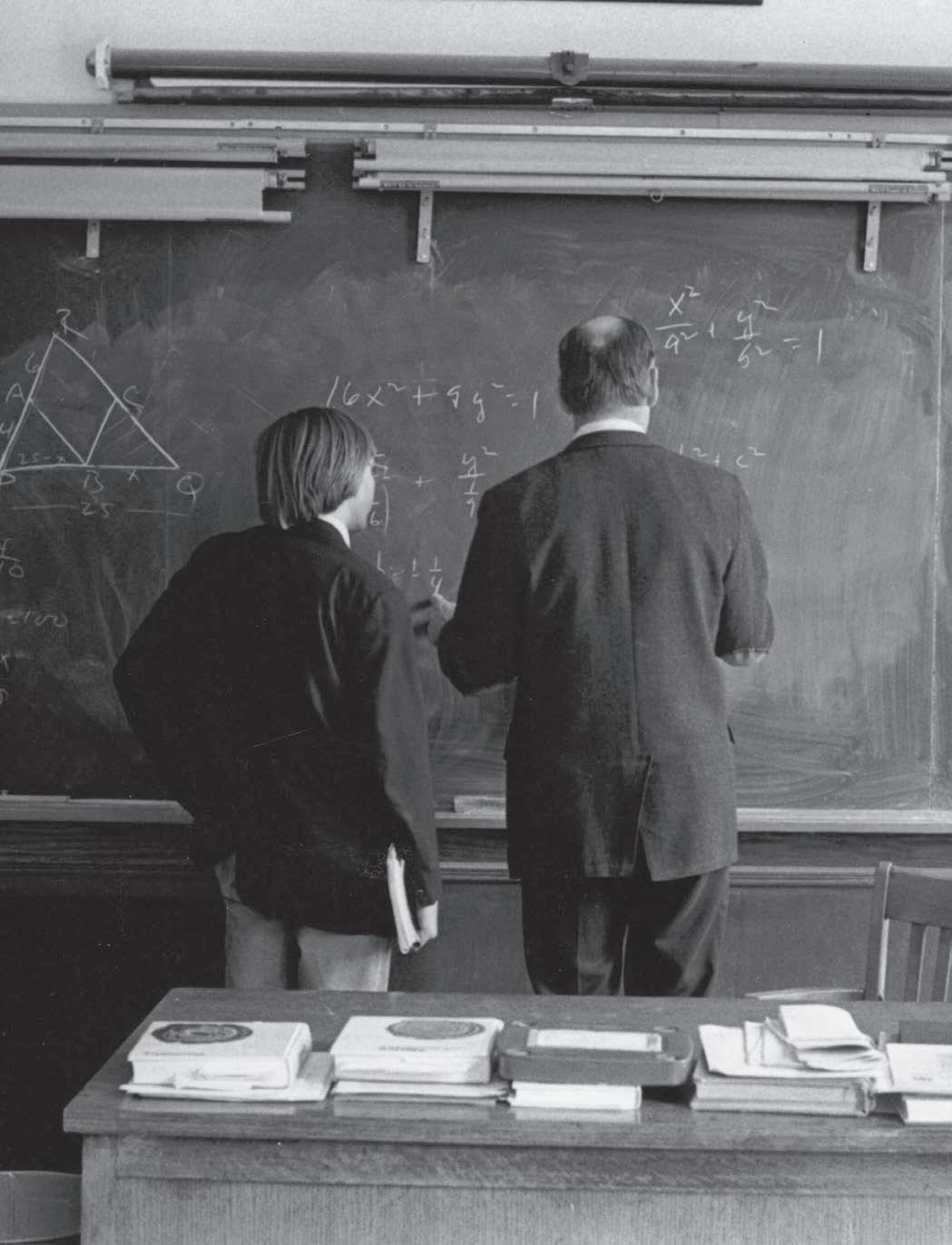
looking back
MATH FACULTY MEMBER and Director of Nobles Day Camp Grandin Wise reviewing math problems with Nobles student Tim Mansfield ’79.
LEARNING TO LEAD
At Nobles, students and teachers work toward common goals with integrity, curiosiy and an intention that their work can benefit themselves and others. Make a gift to the Annual Nobles Fund today. www.nobles.edu/giving
NObLEs WINTER 2023 3
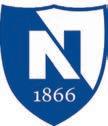
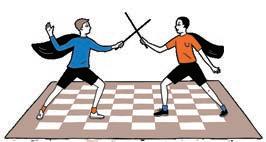
Giving back with gratitude PG 36 LACING UP AND LEANING IN NONPROFIT U.S. POSTAGE PAID N READING MA PERMIT NO. 121 Two Nobles grads build on decades of support for Nobles. PG 24 Commitment t hrough the Ages
Noble and Greenough School 10 Campus Drive Dedham, MA 02026-4099




























 2022 CORA HIDALGO HOLLAND AWARD
2022 CORA HIDALGO HOLLAND AWARD






 STAFF SPOTLIGHT
STAFF SPOTLIGHT







 COMPUTER SCIENCE
COMPUTER SCIENCE












 Mayo Shattuck III ’72 and Chip Goode ’72 keep giving back.
Mayo Shattuck III ’72 and Chip Goode ’72 keep giving back.


























